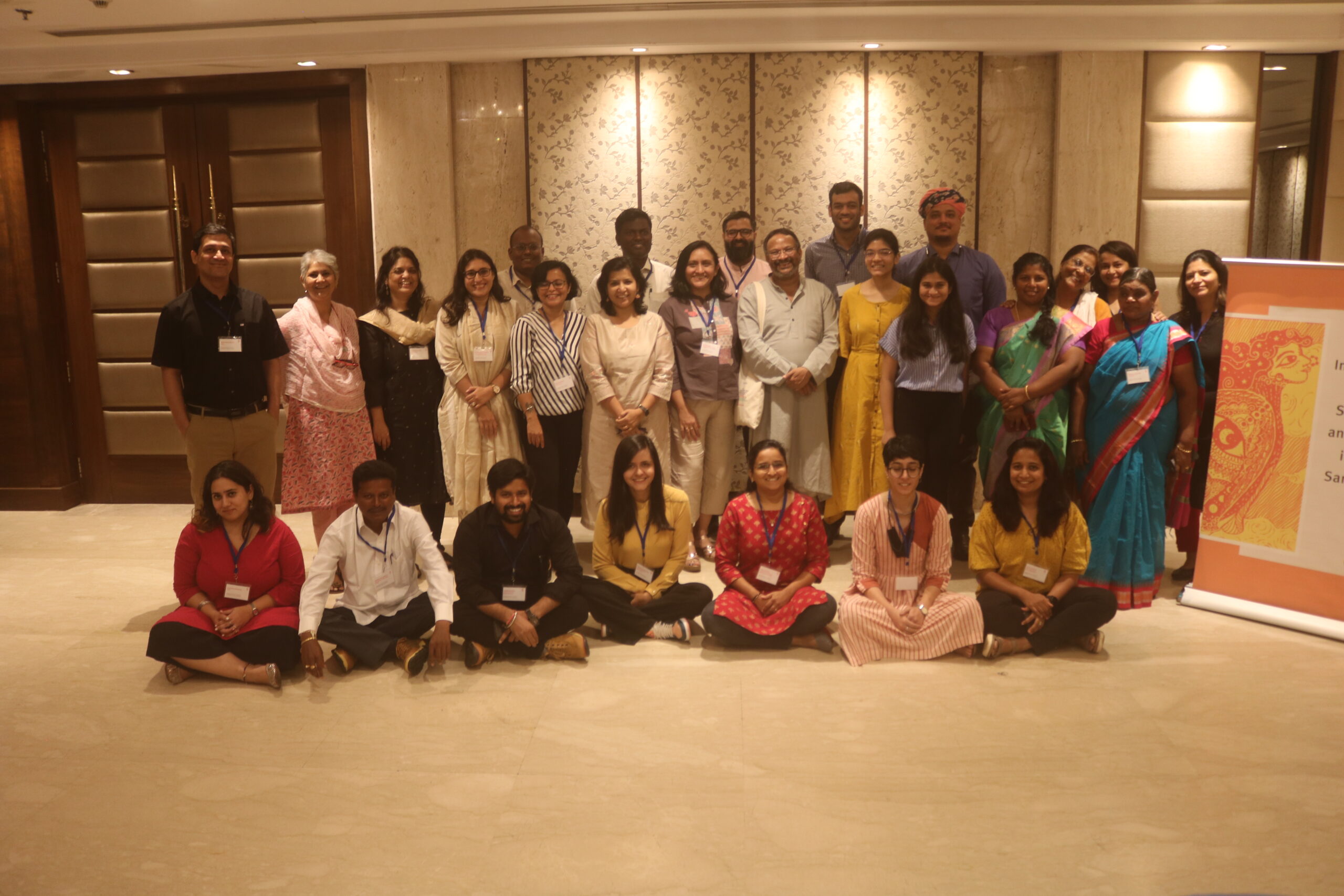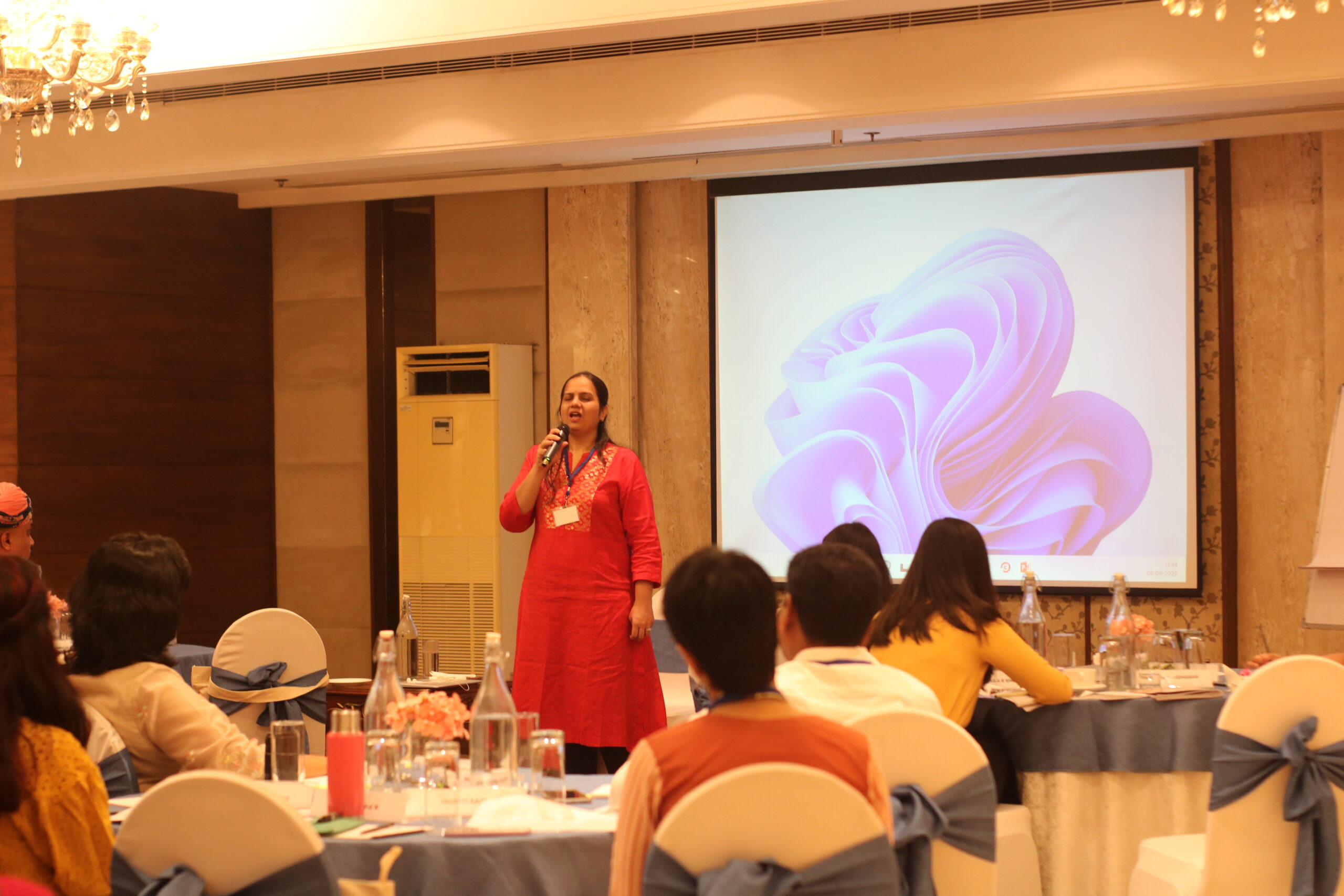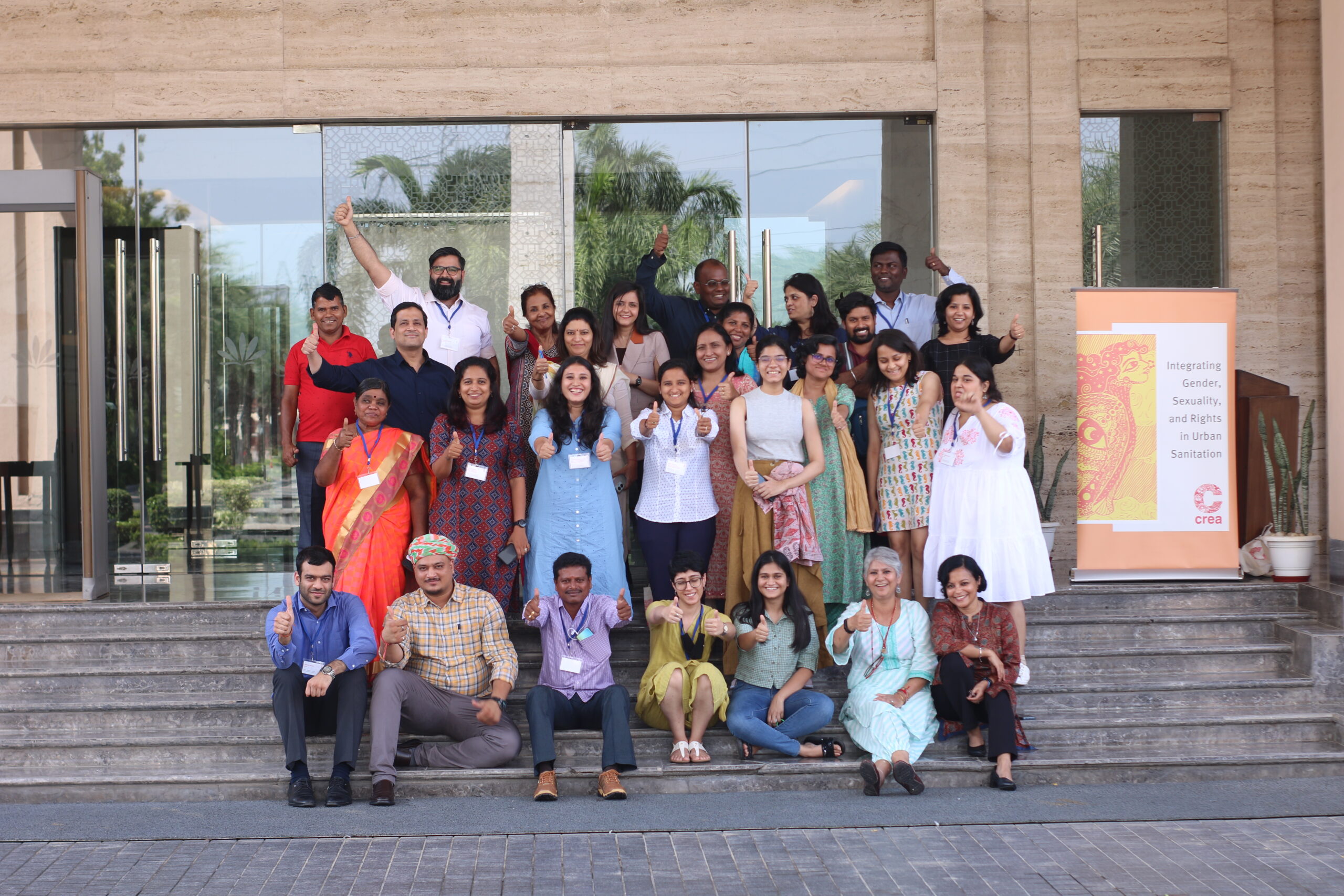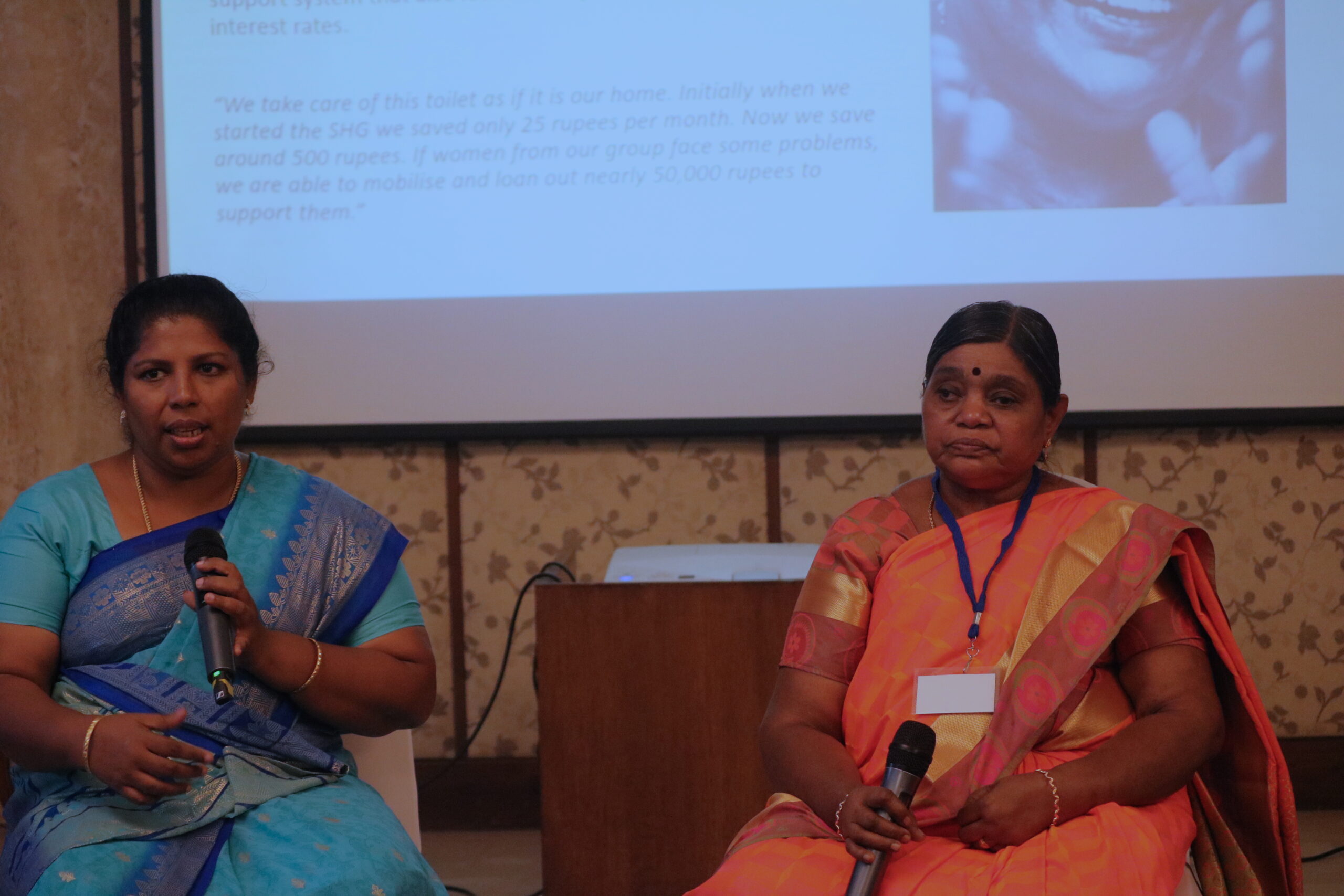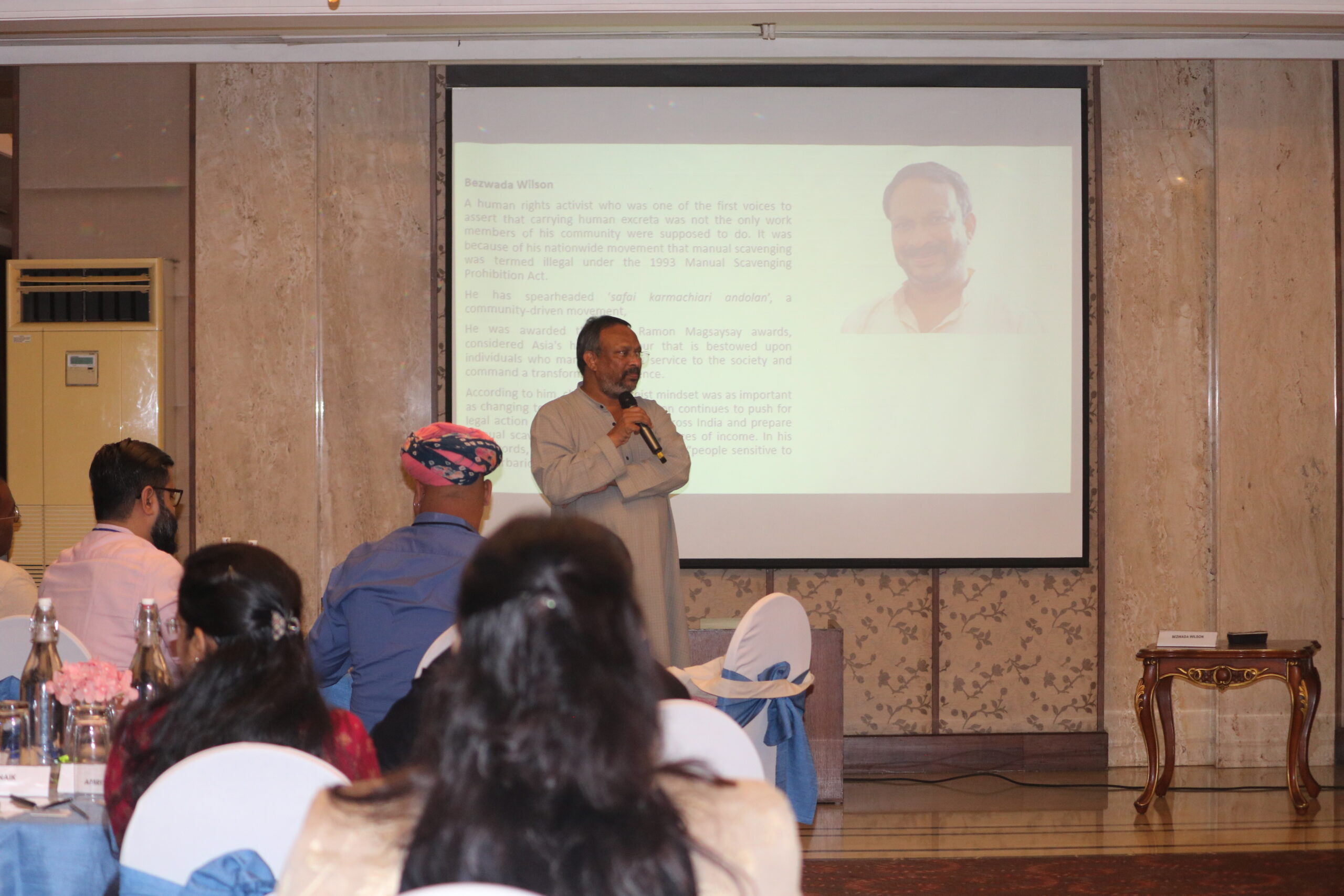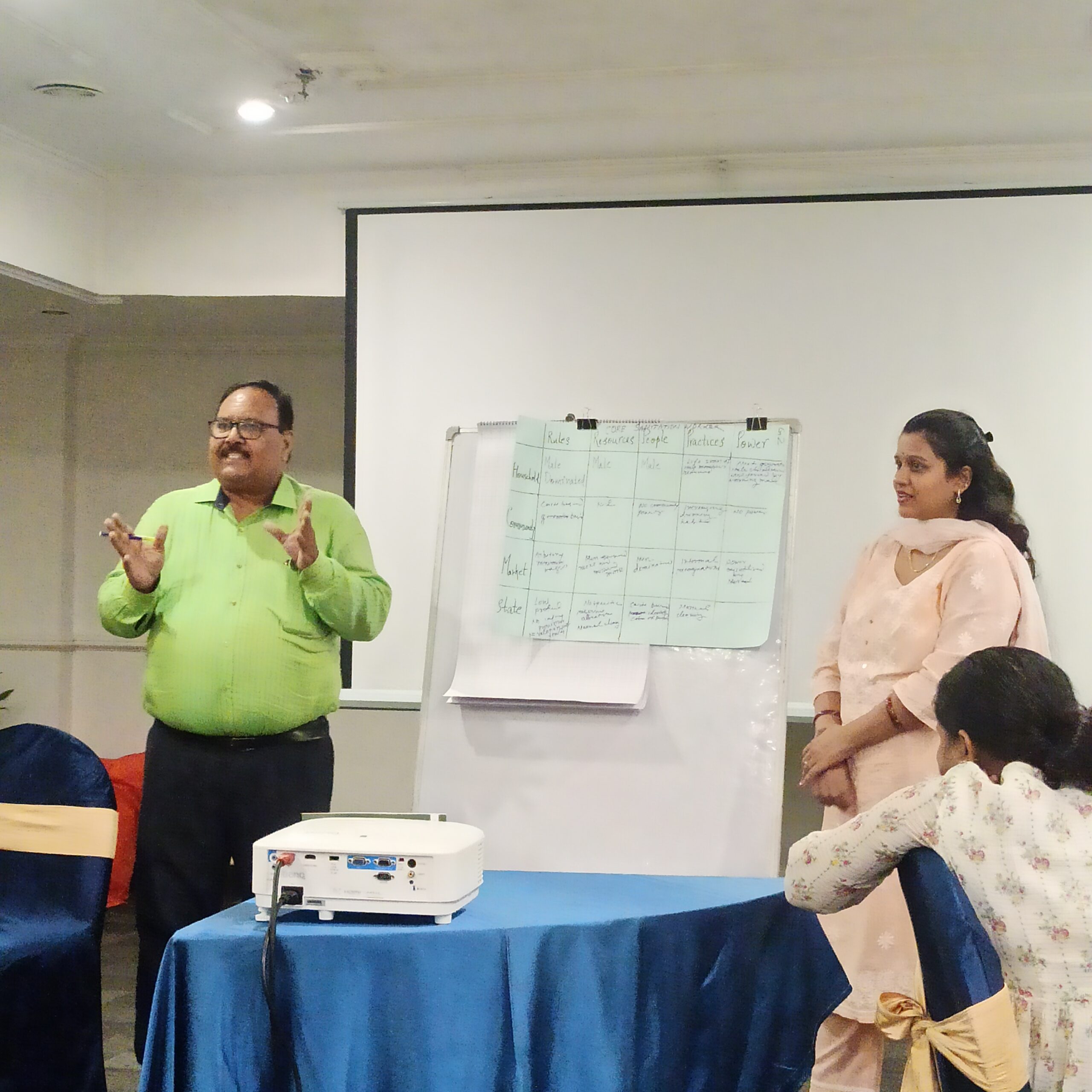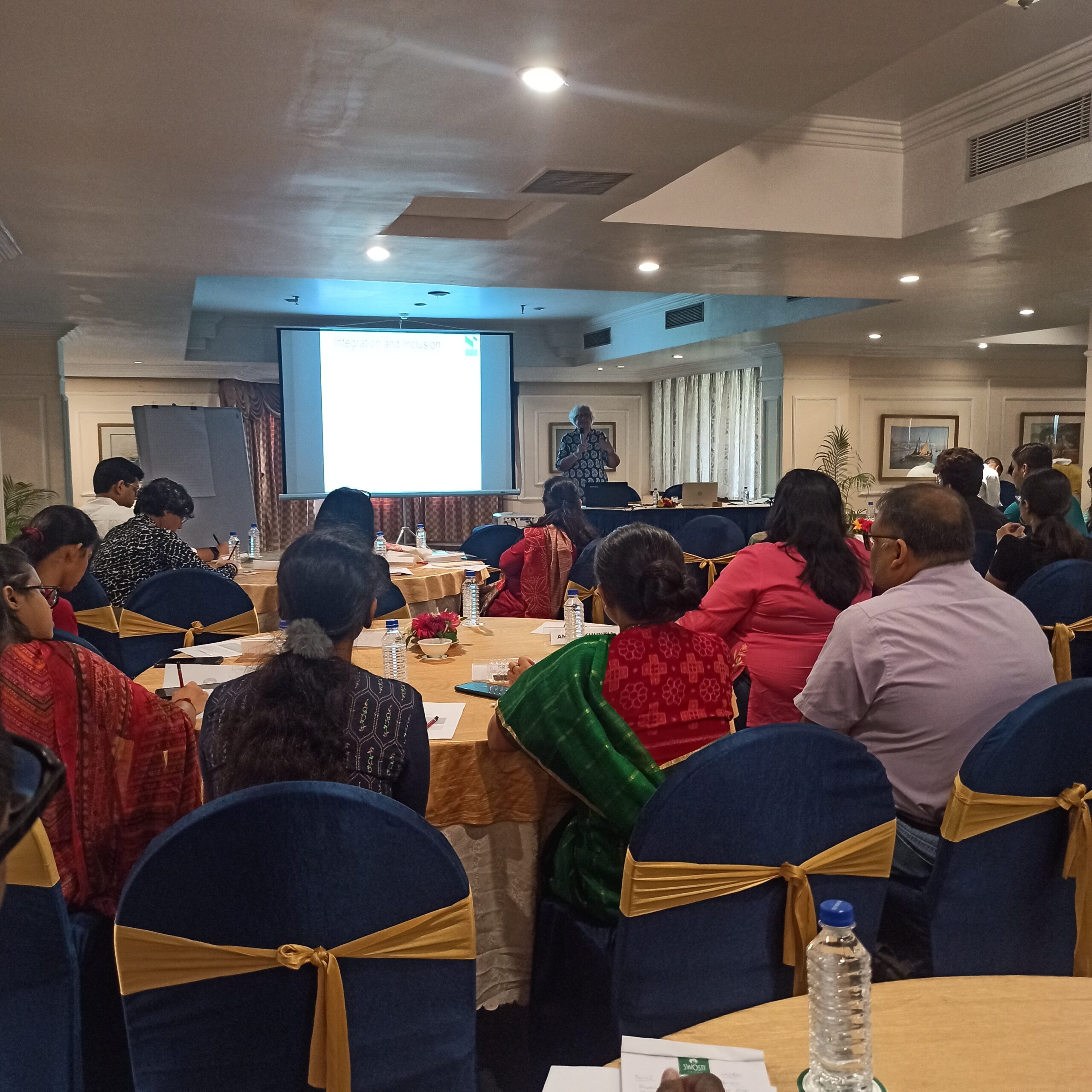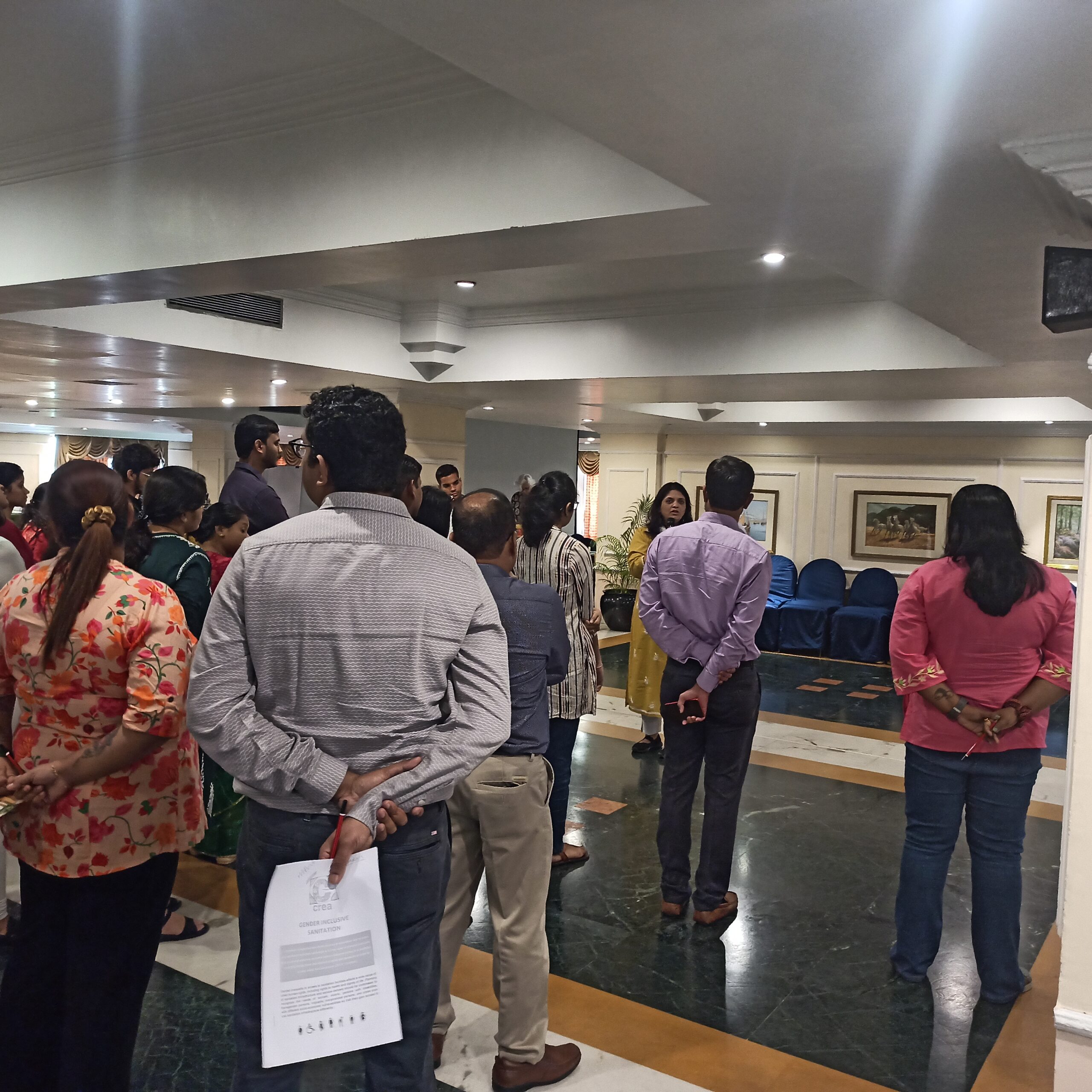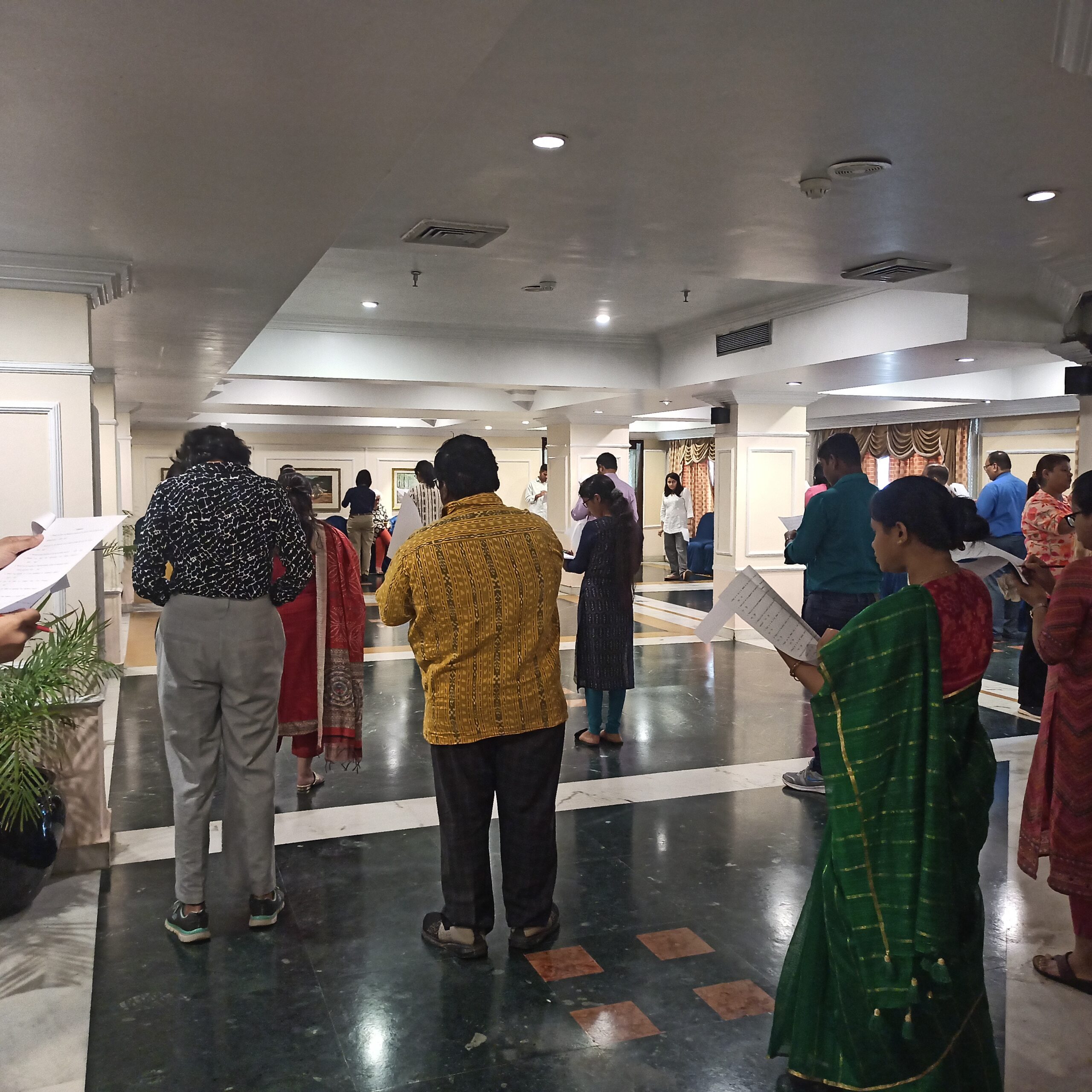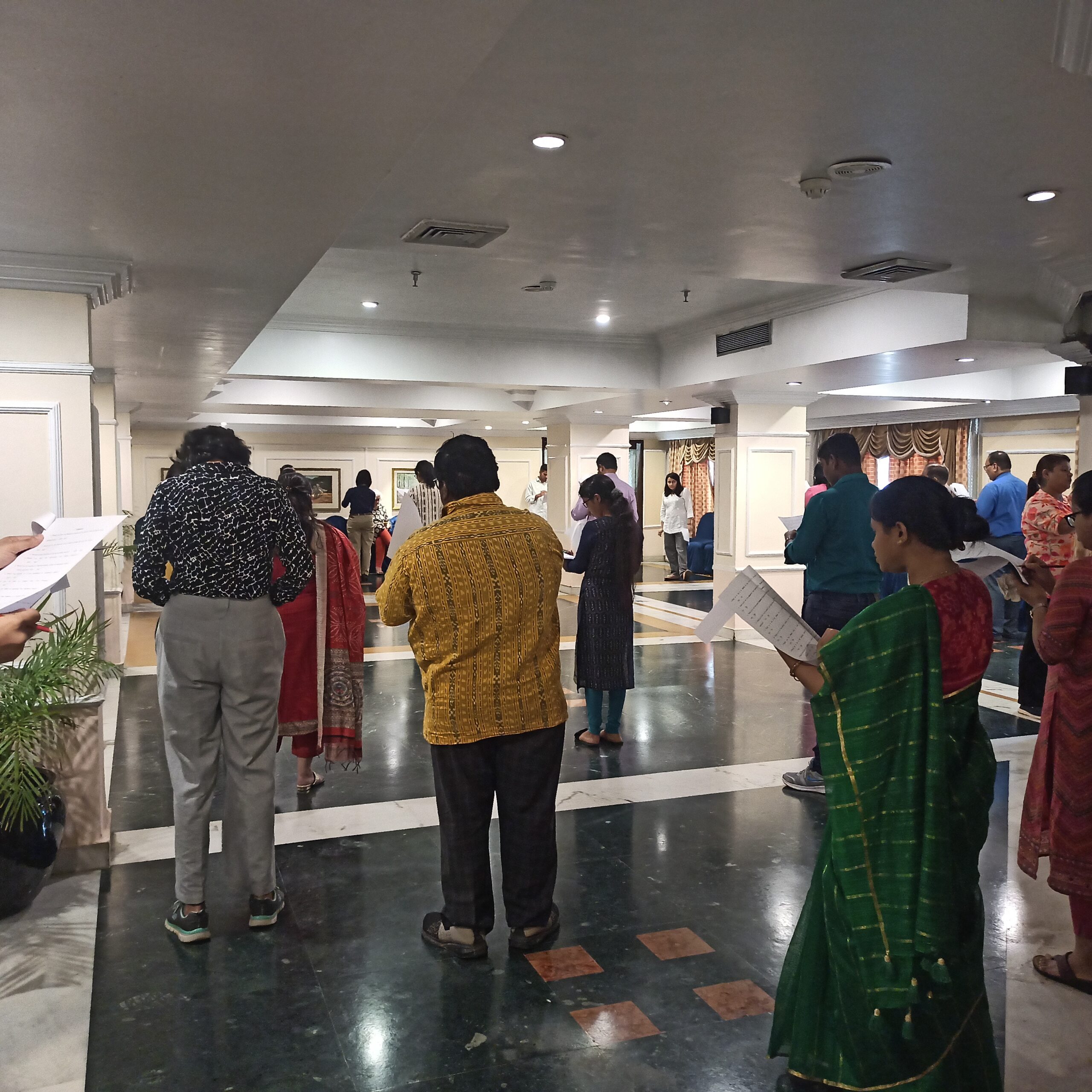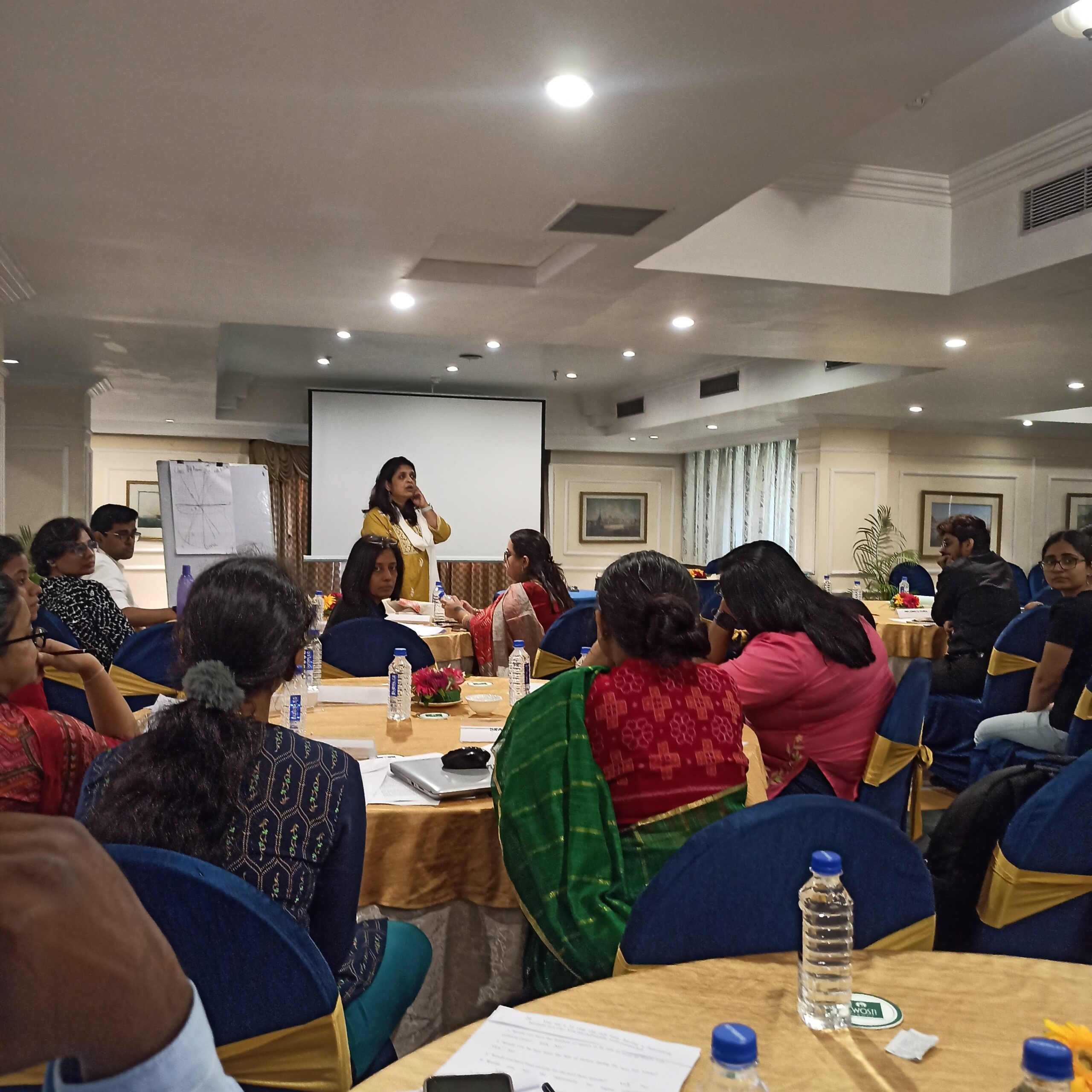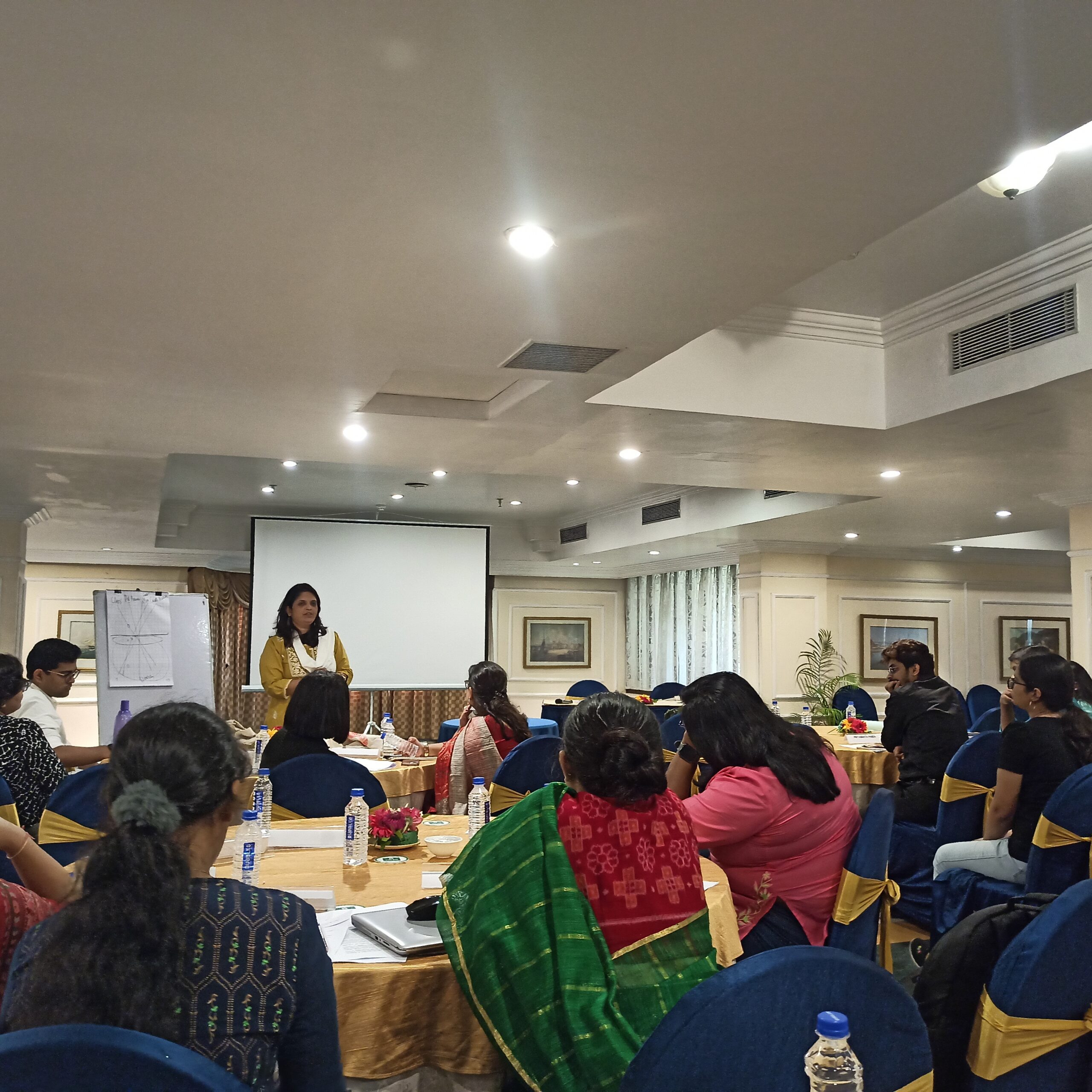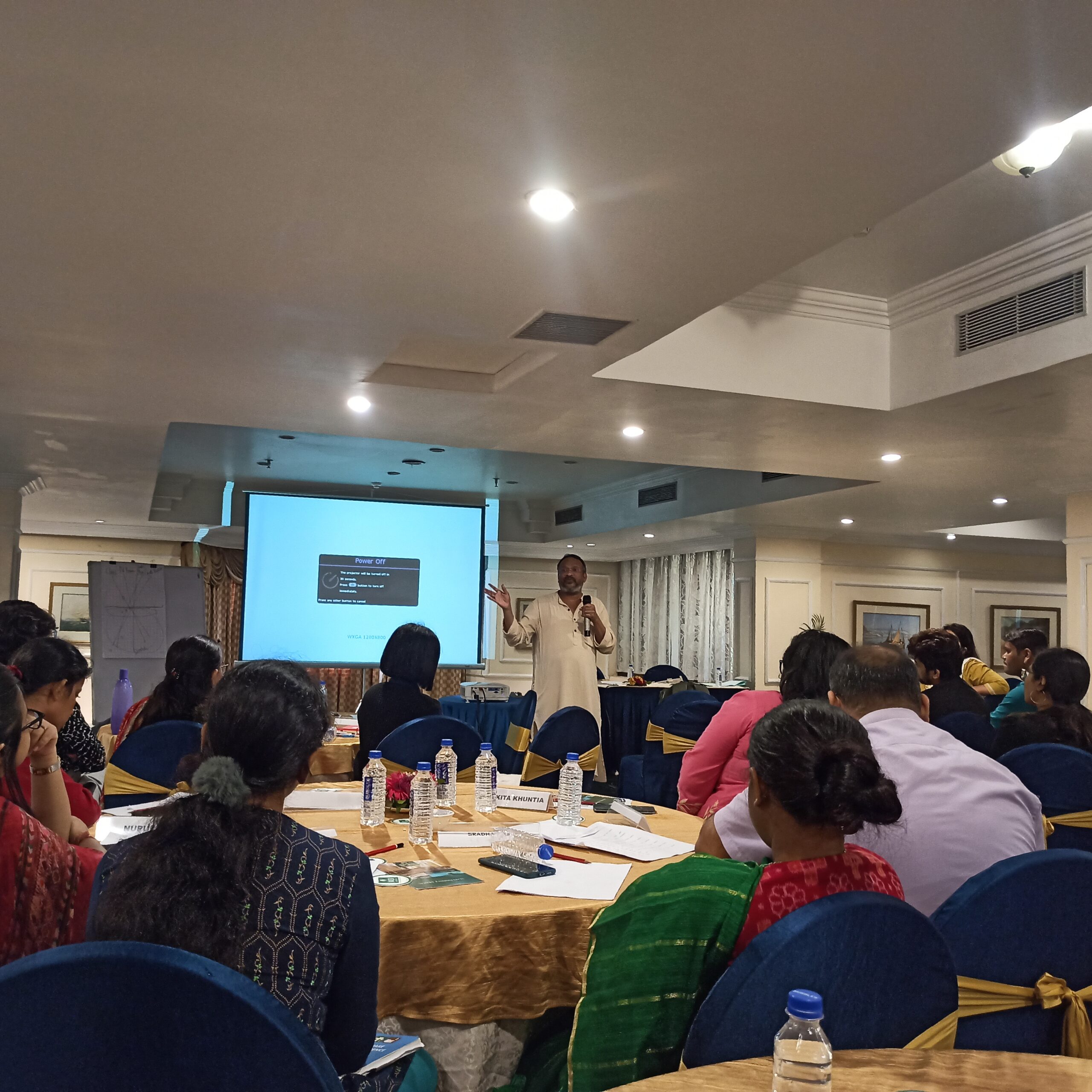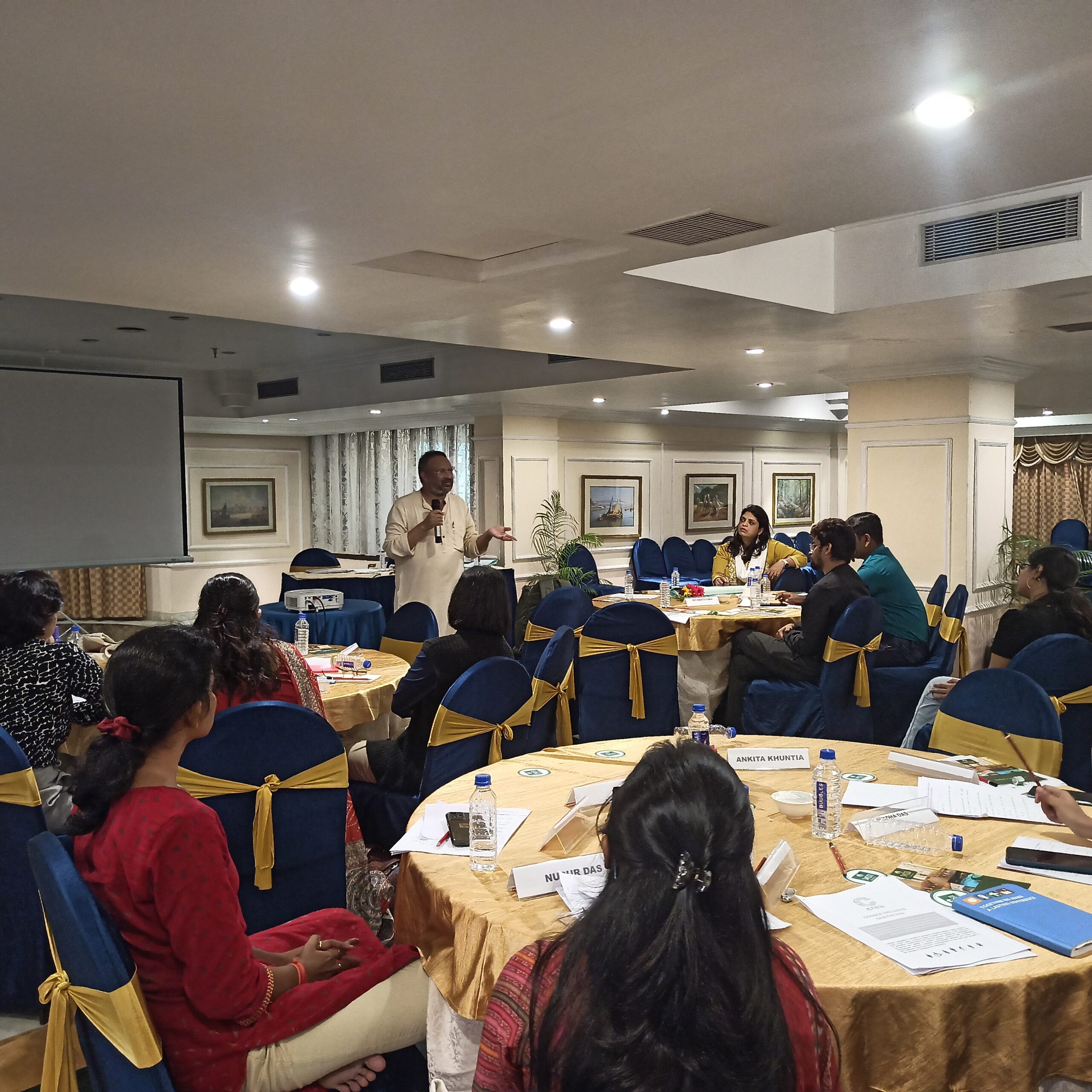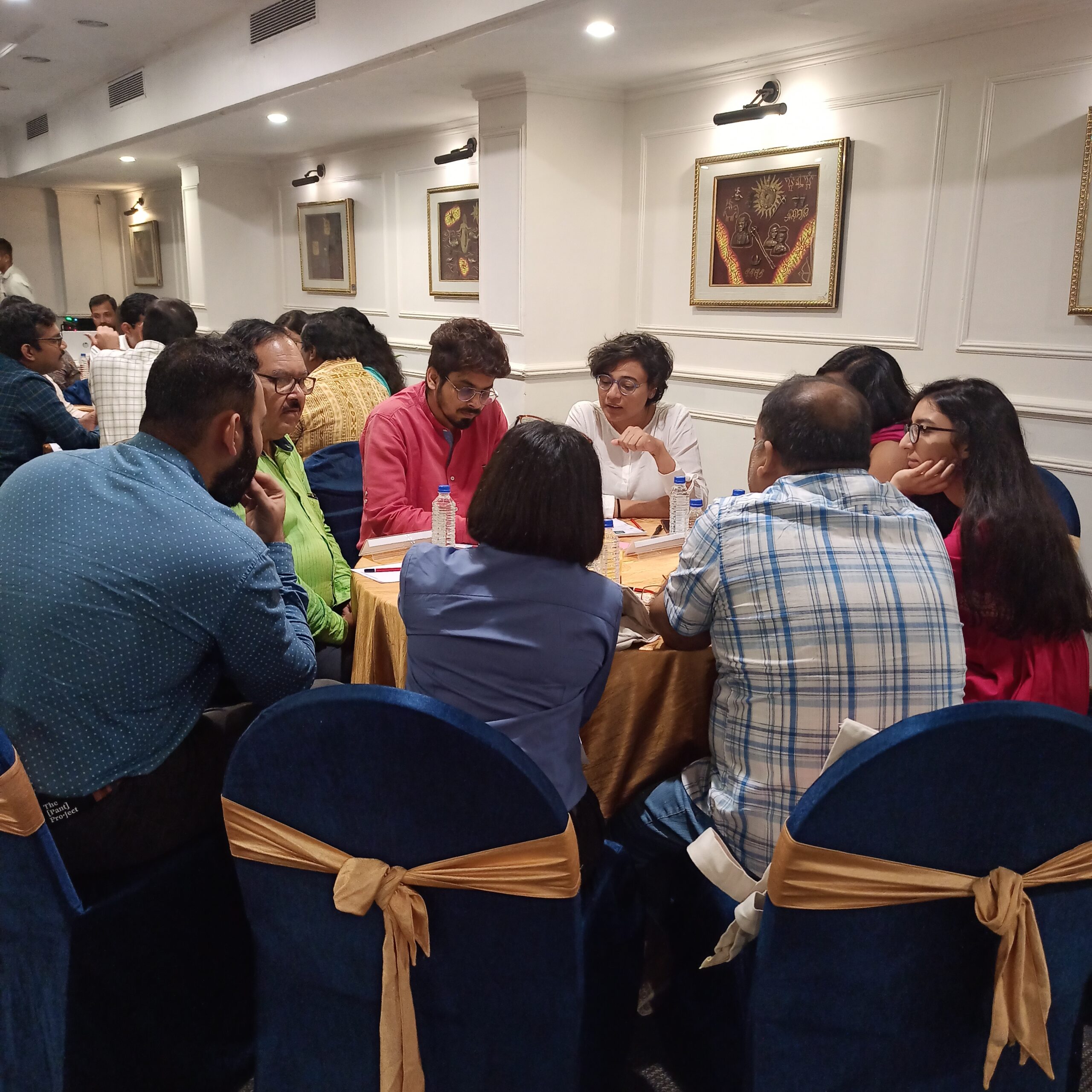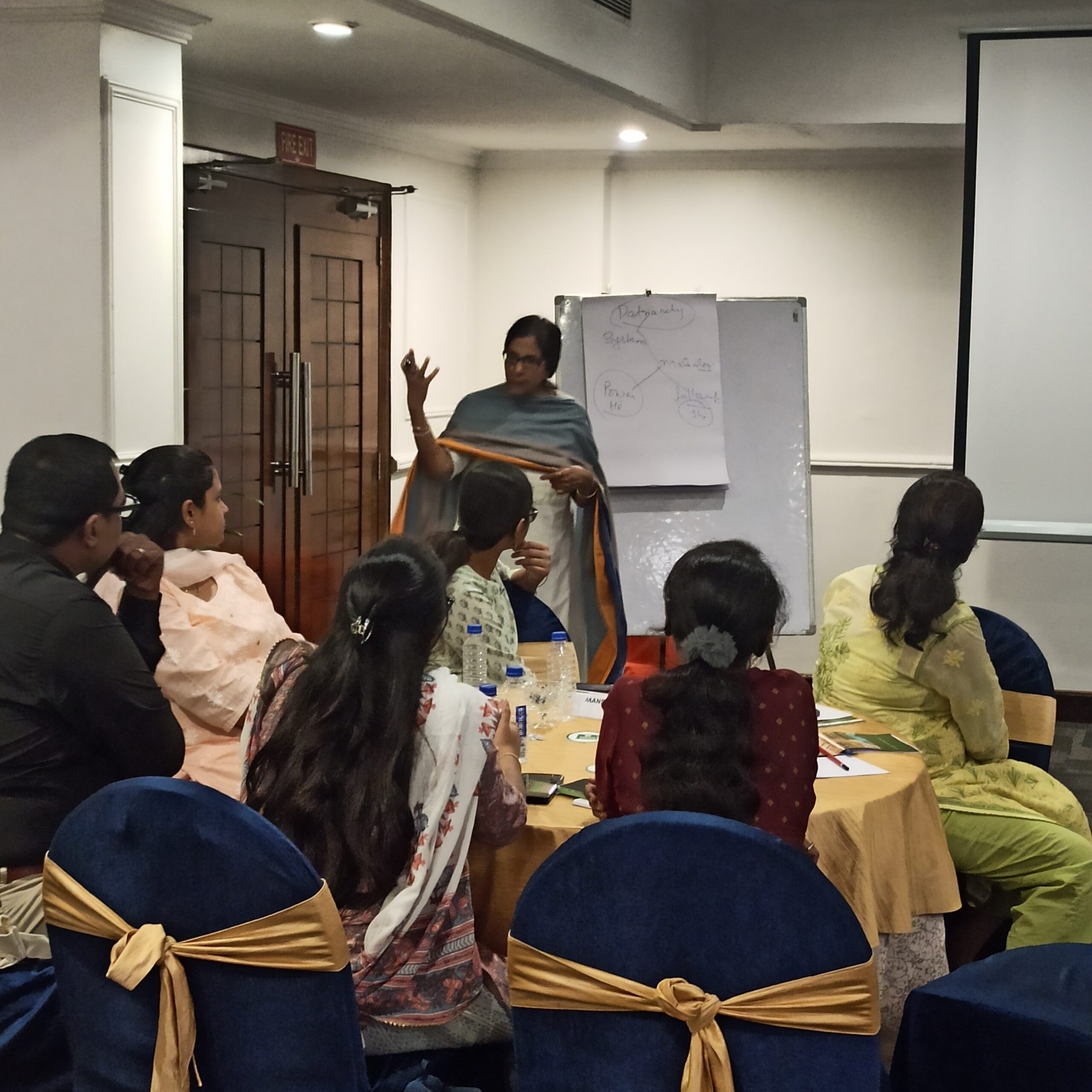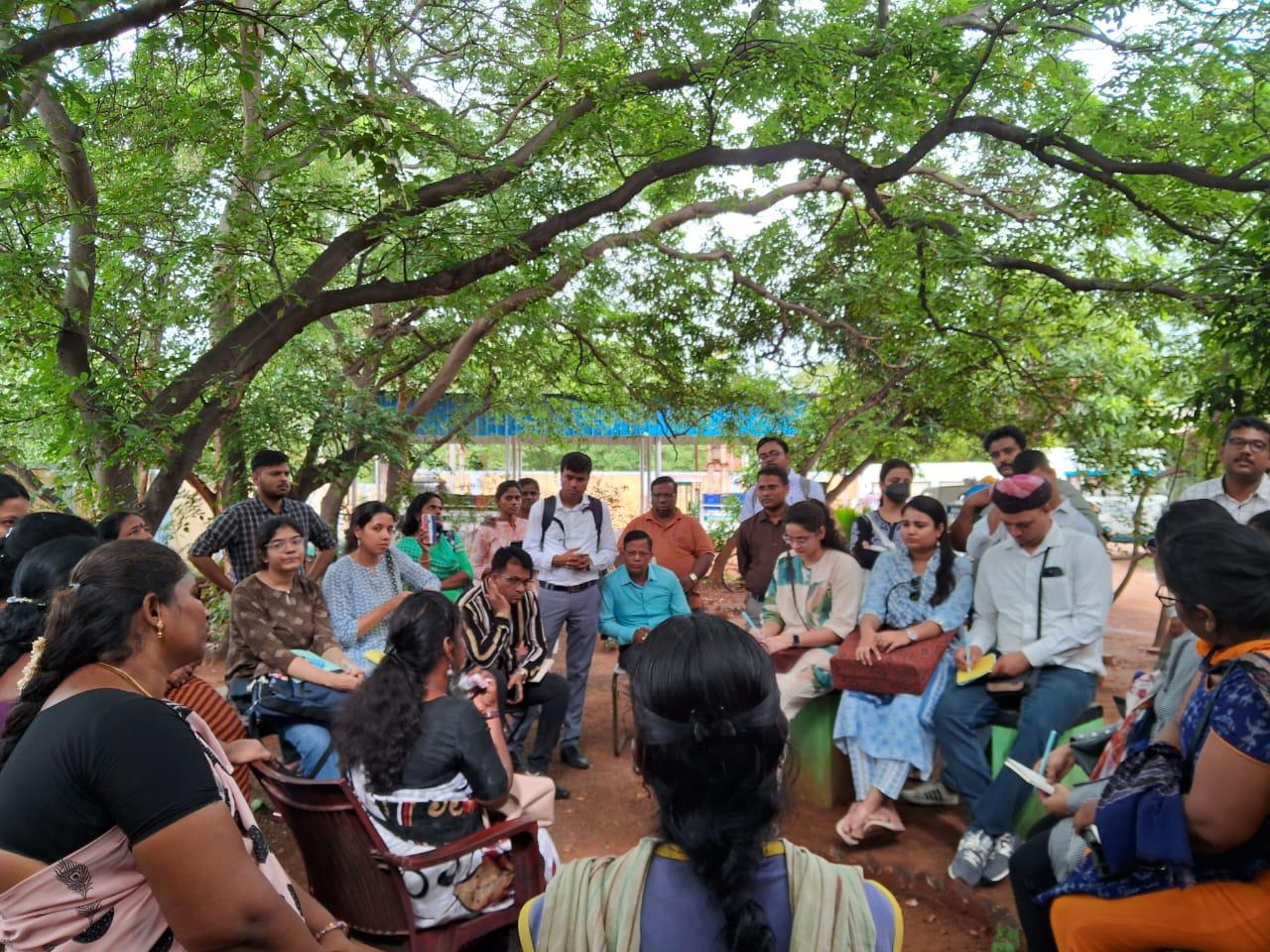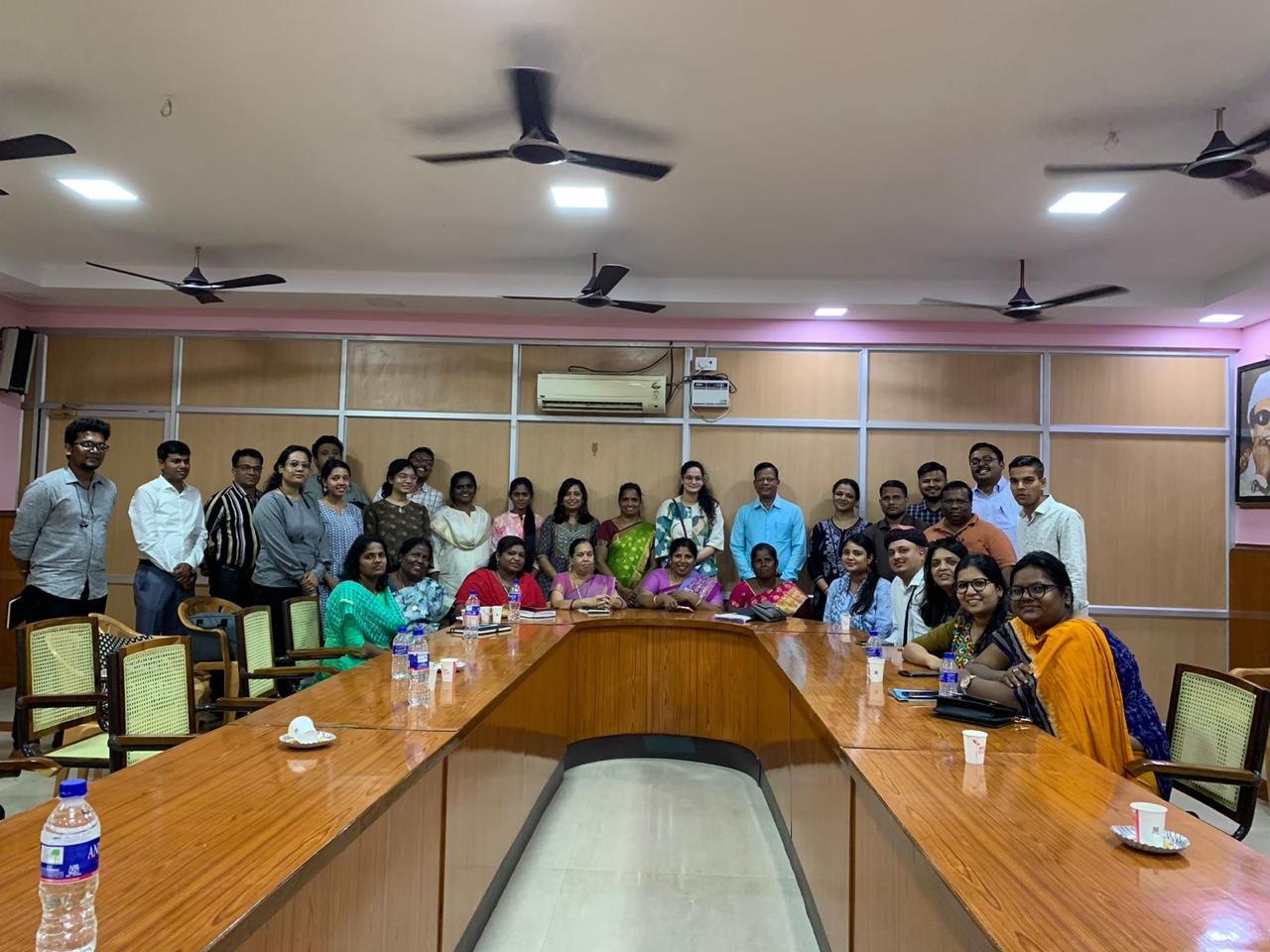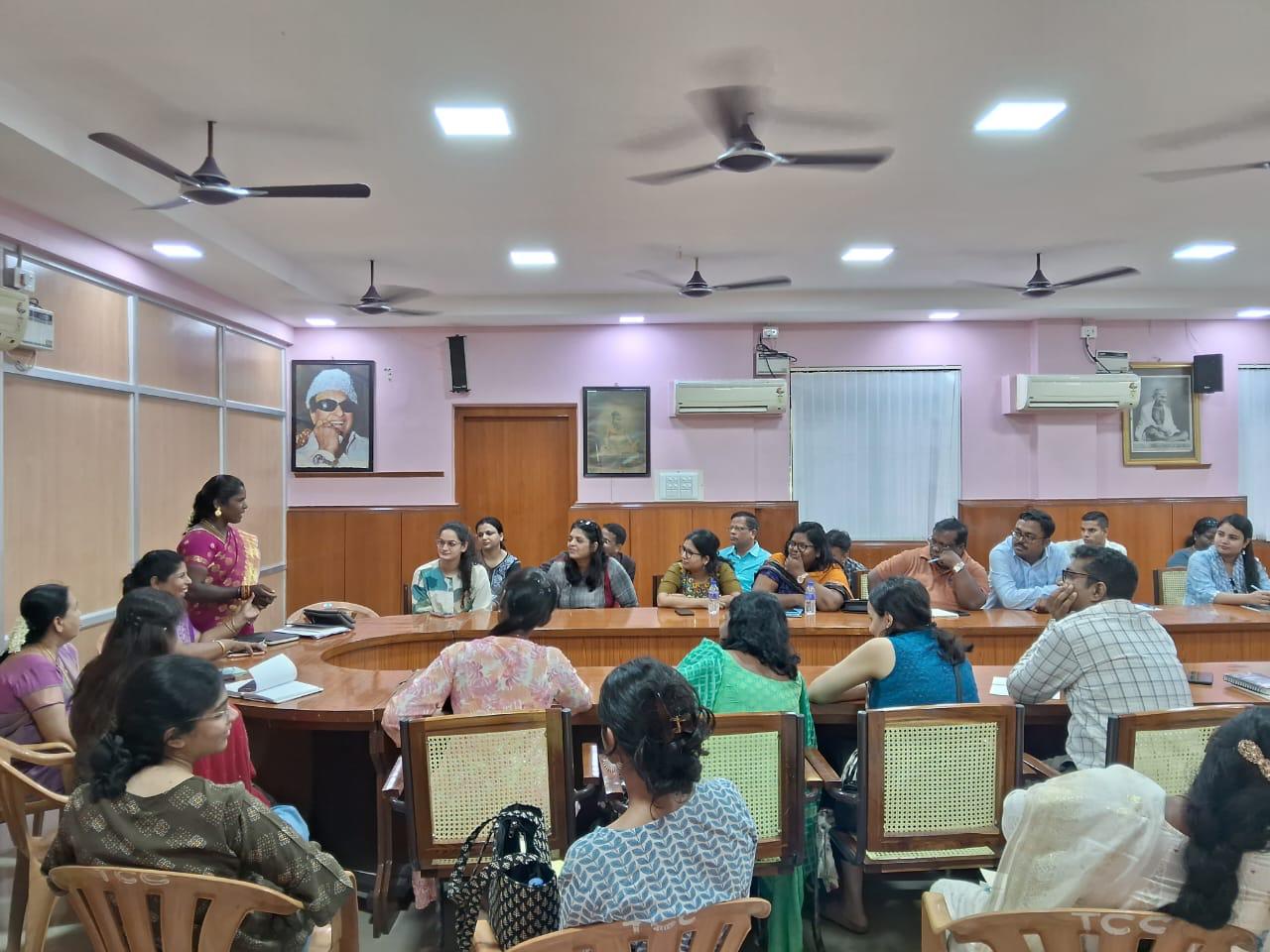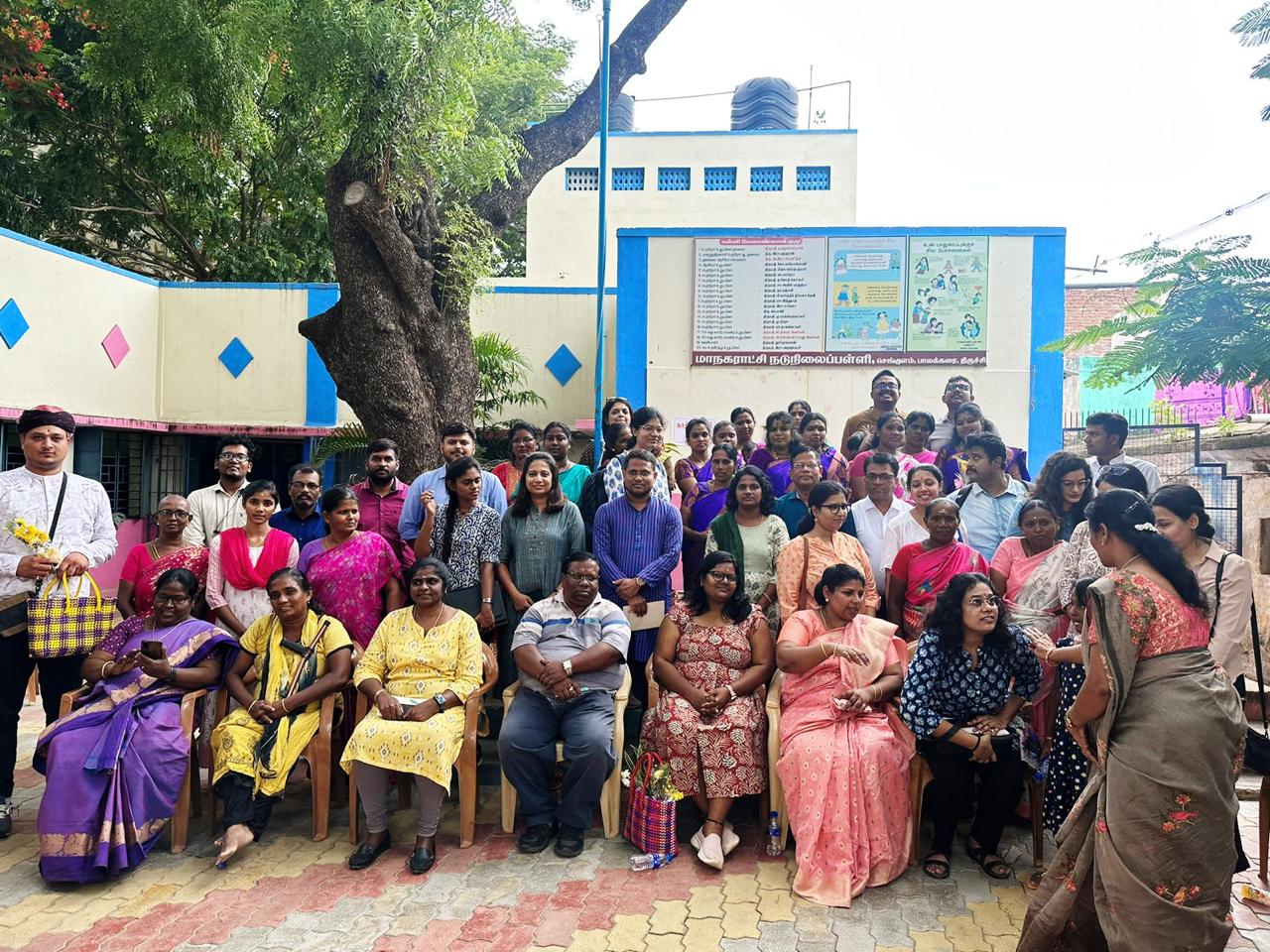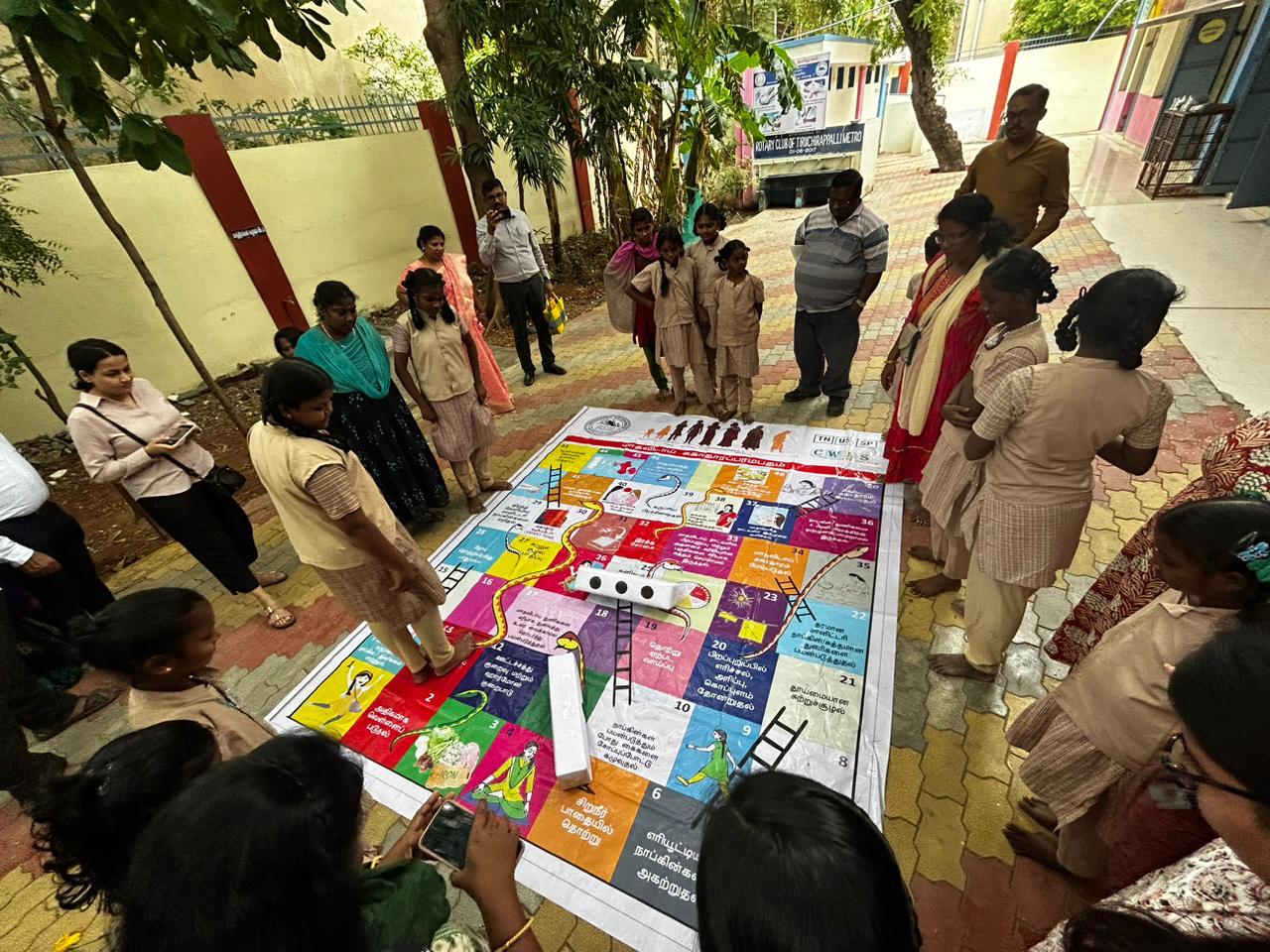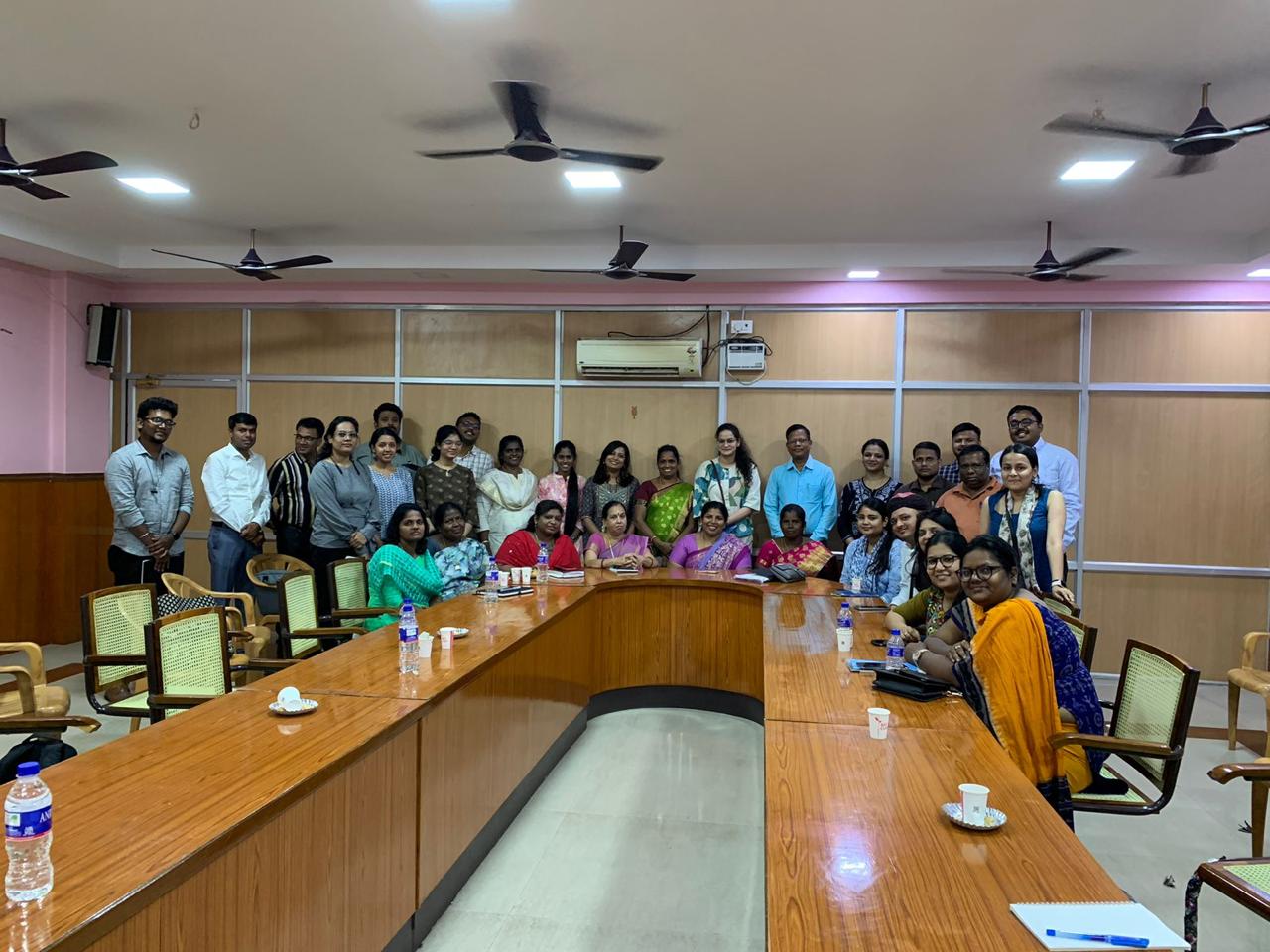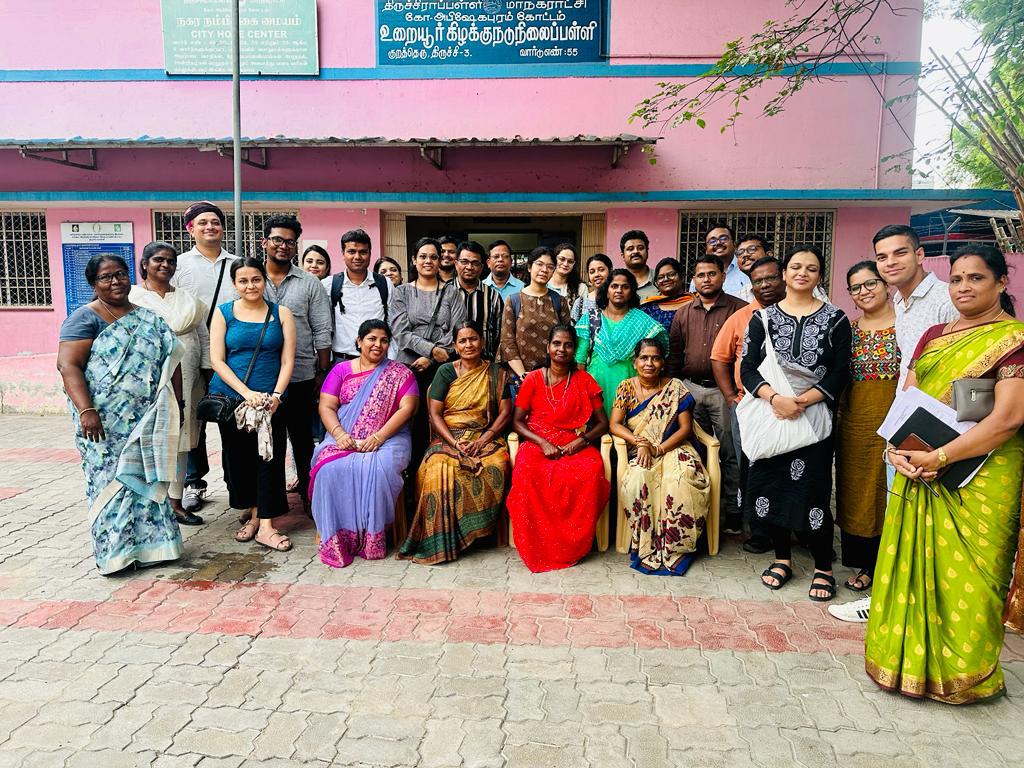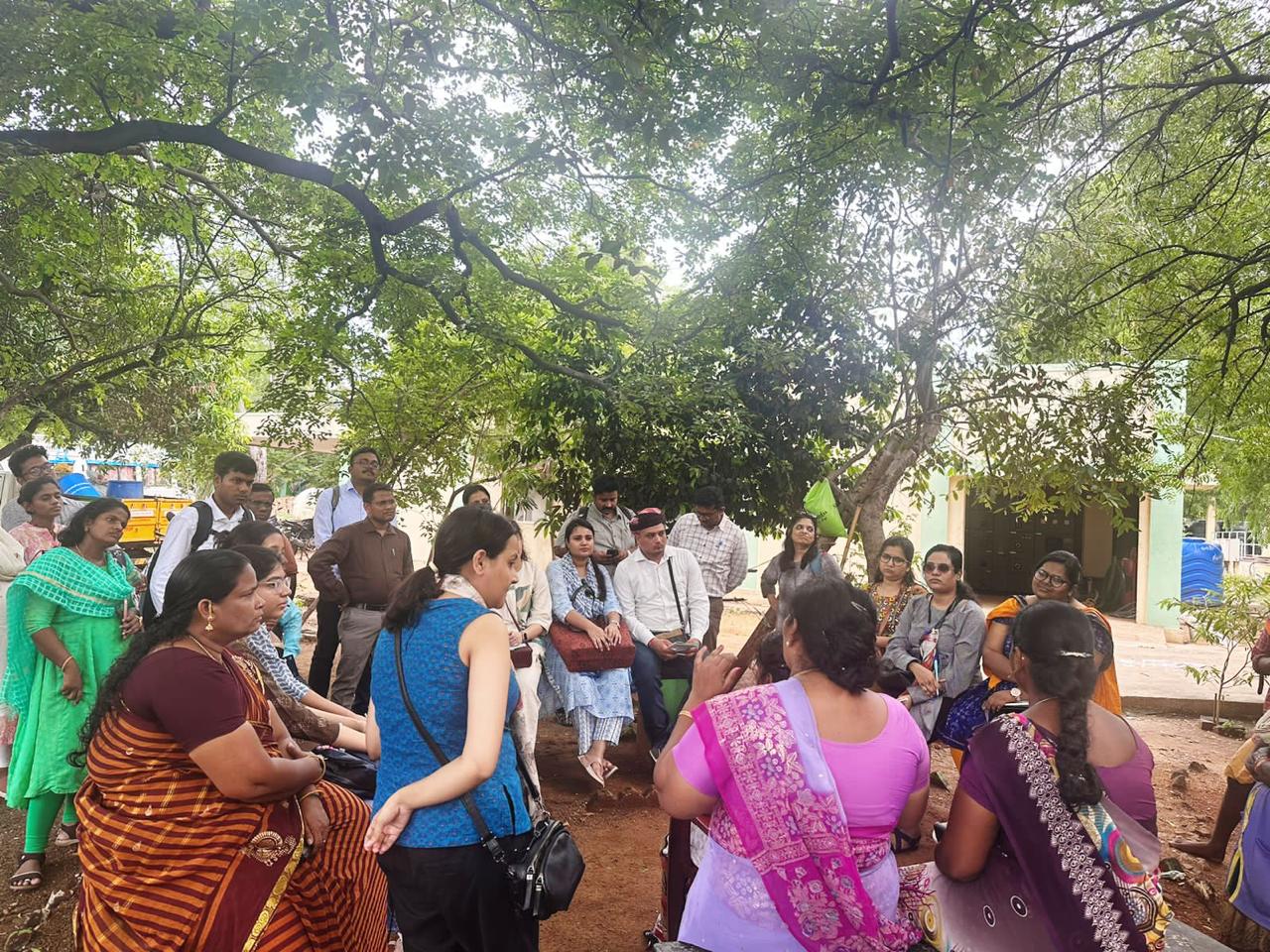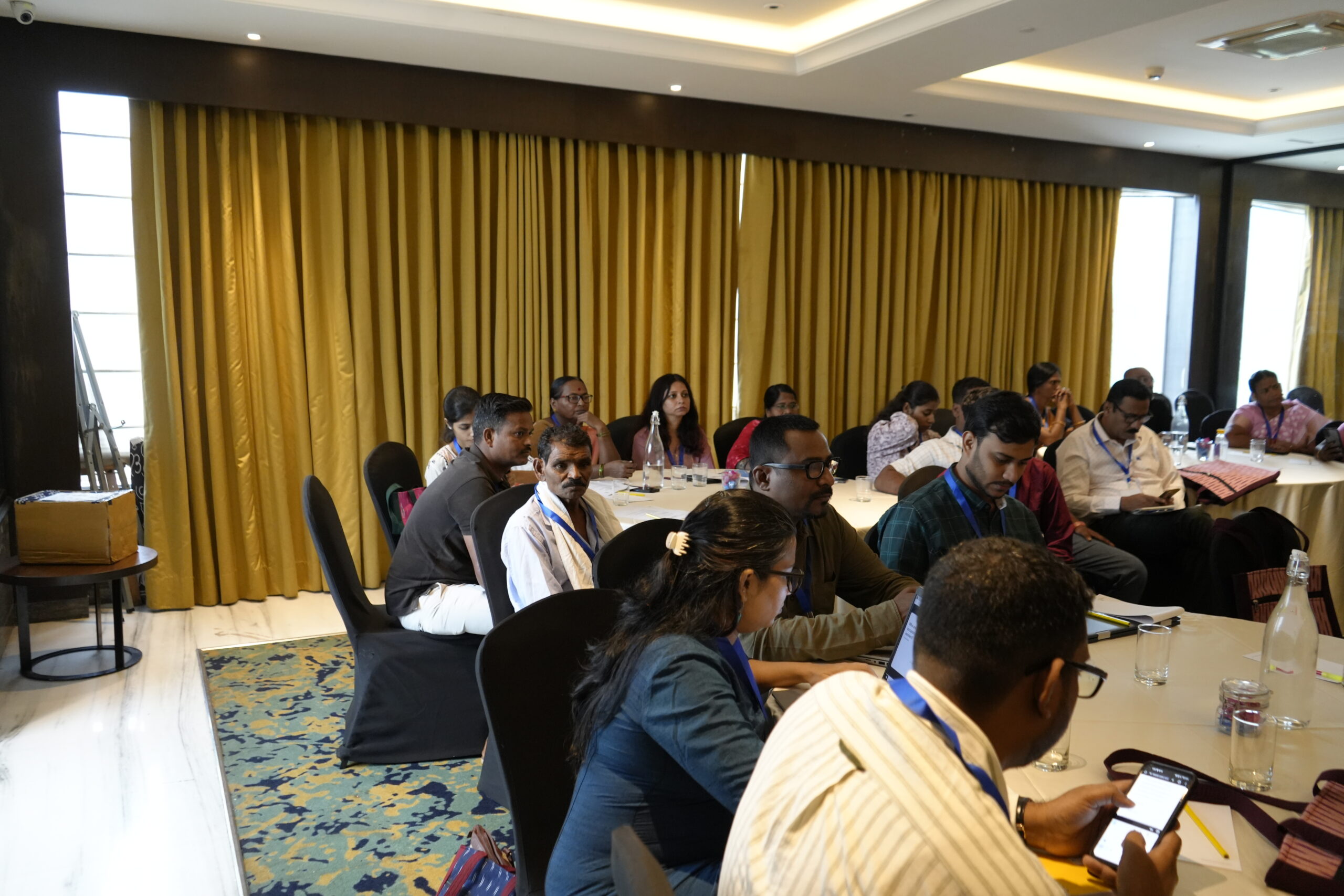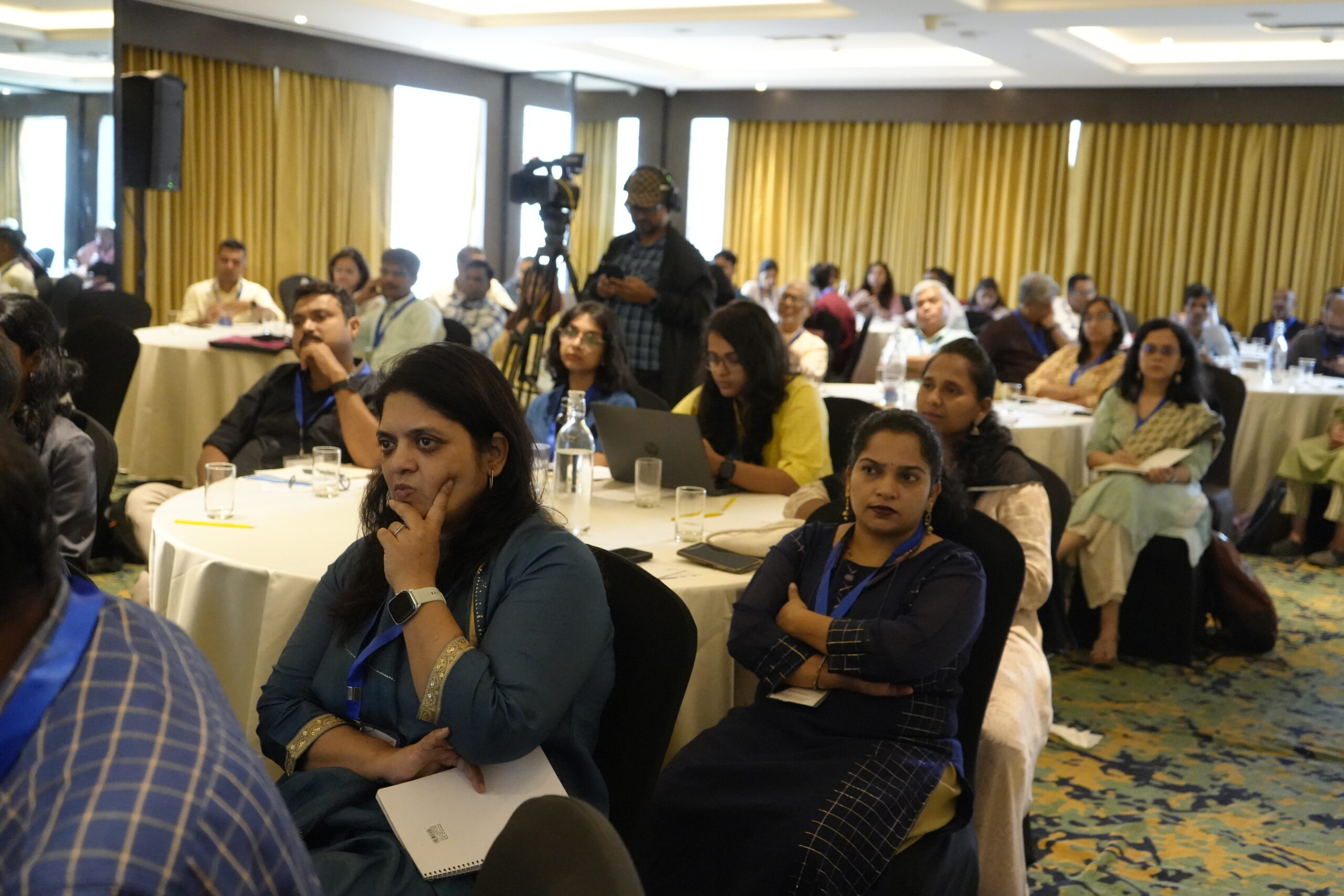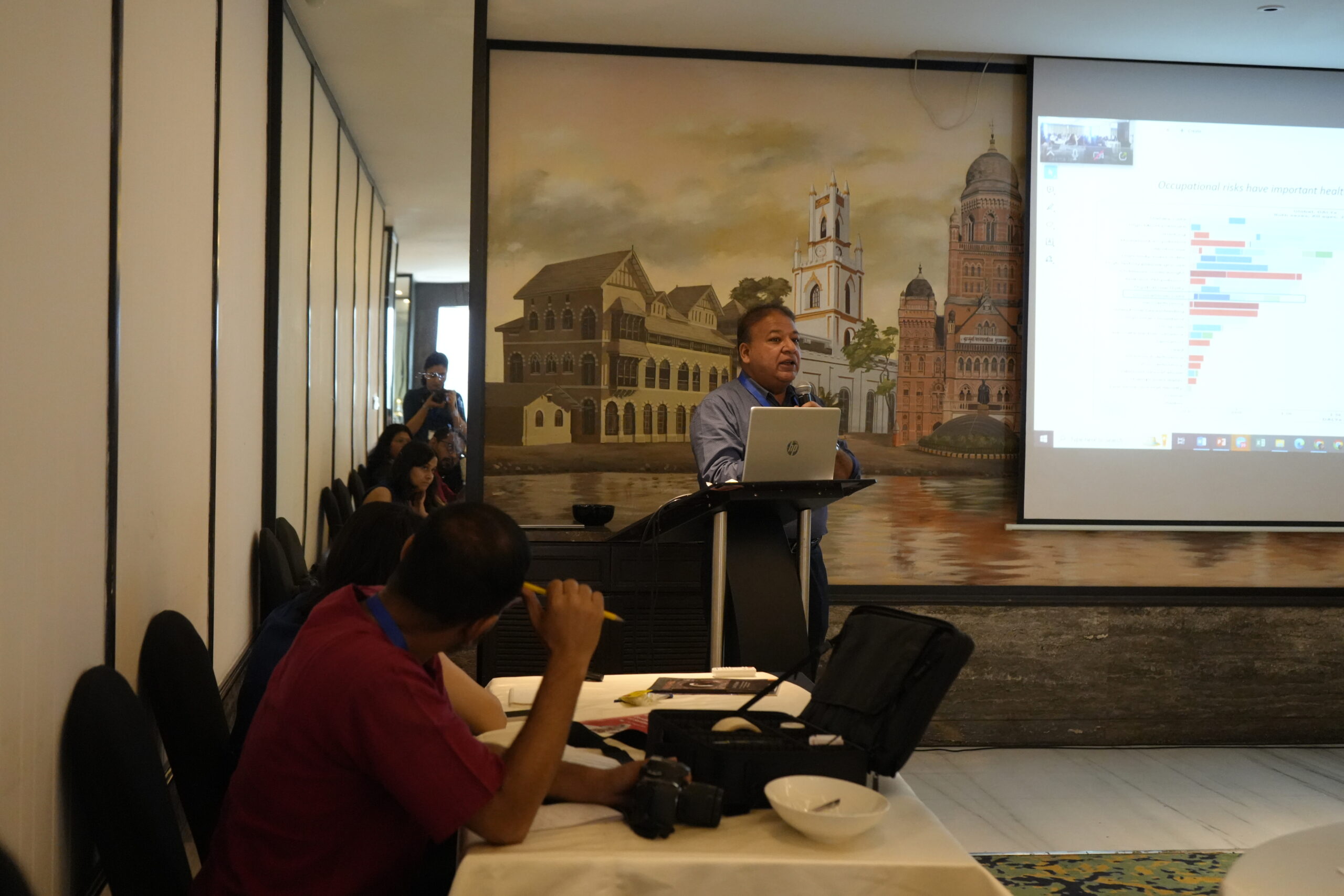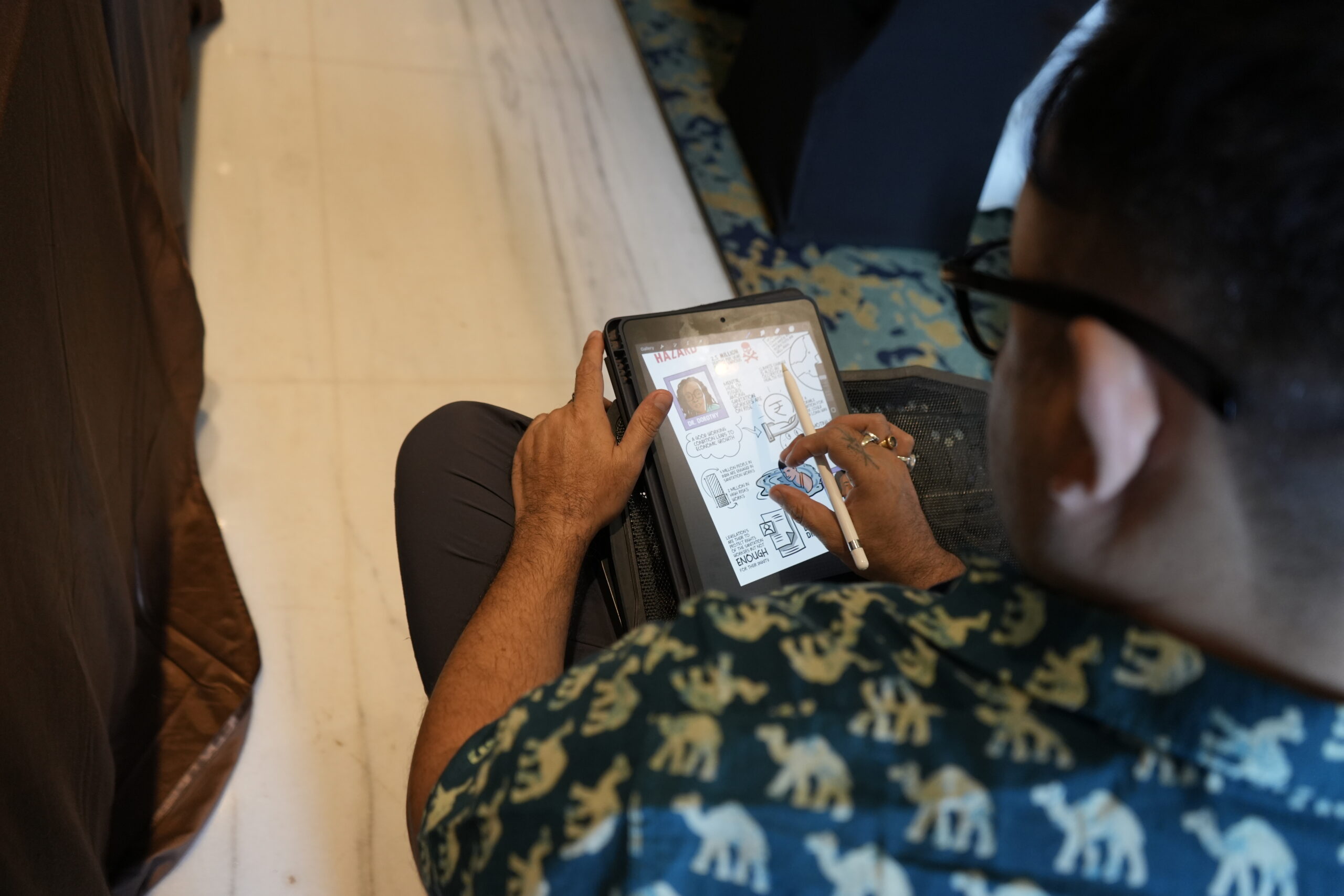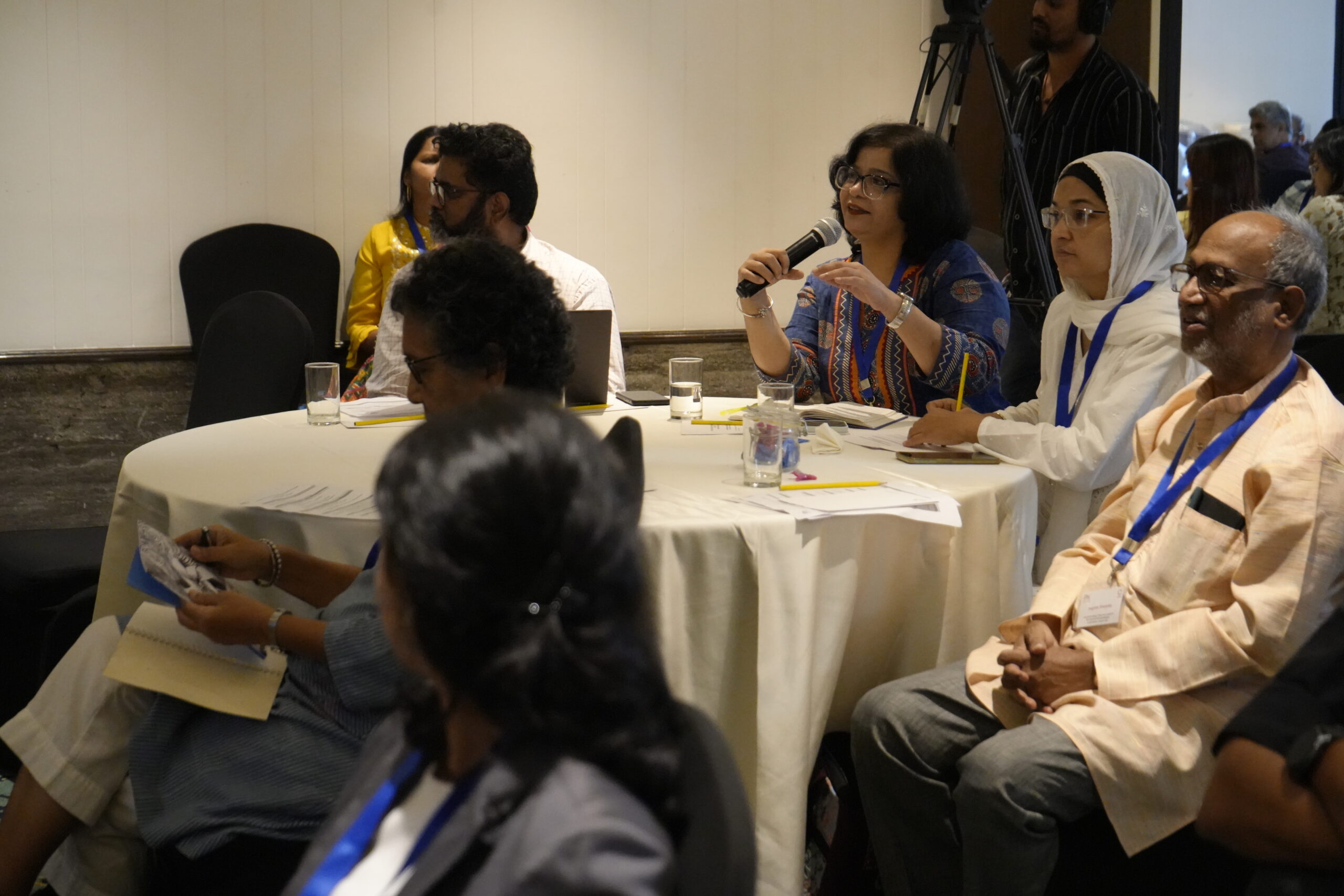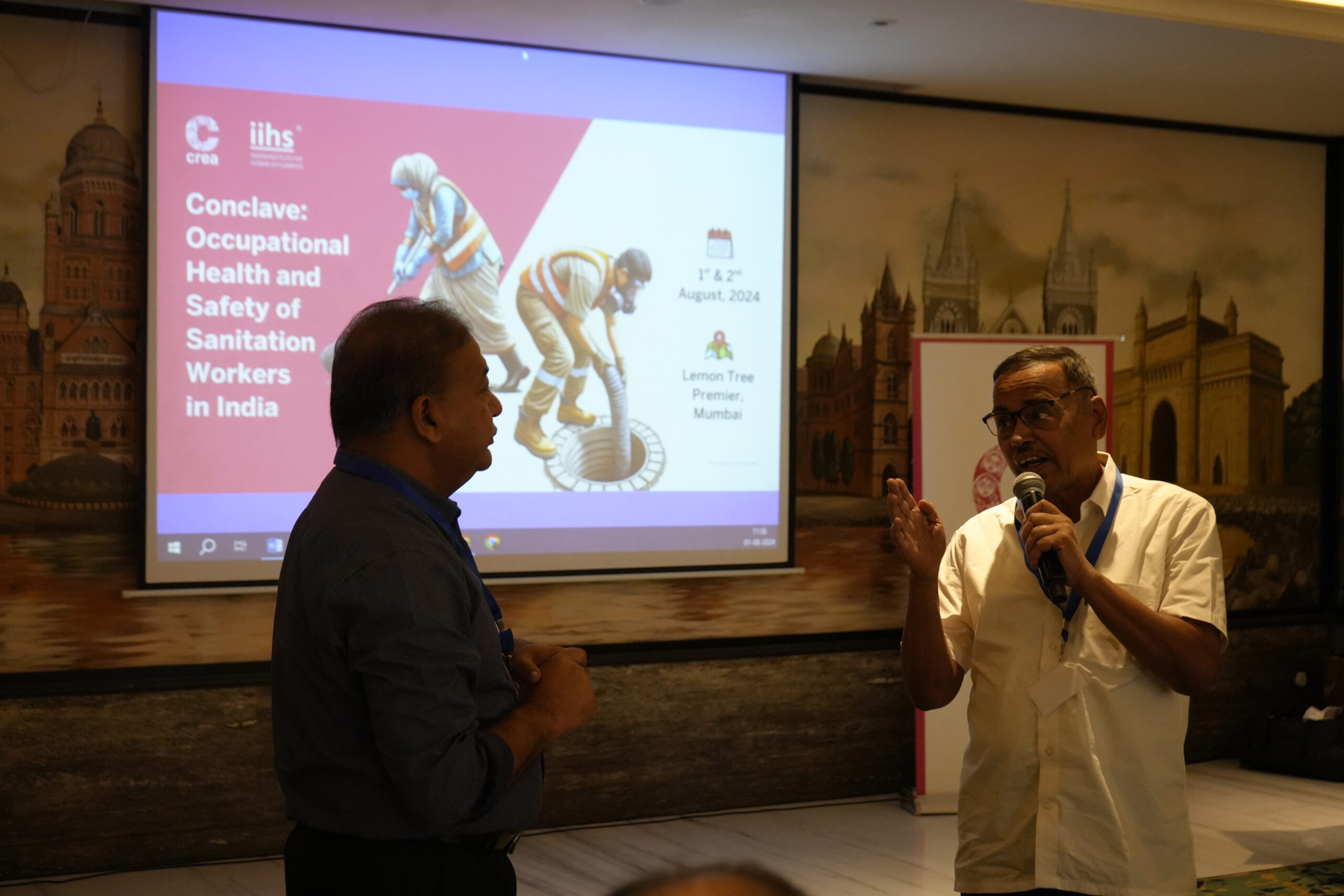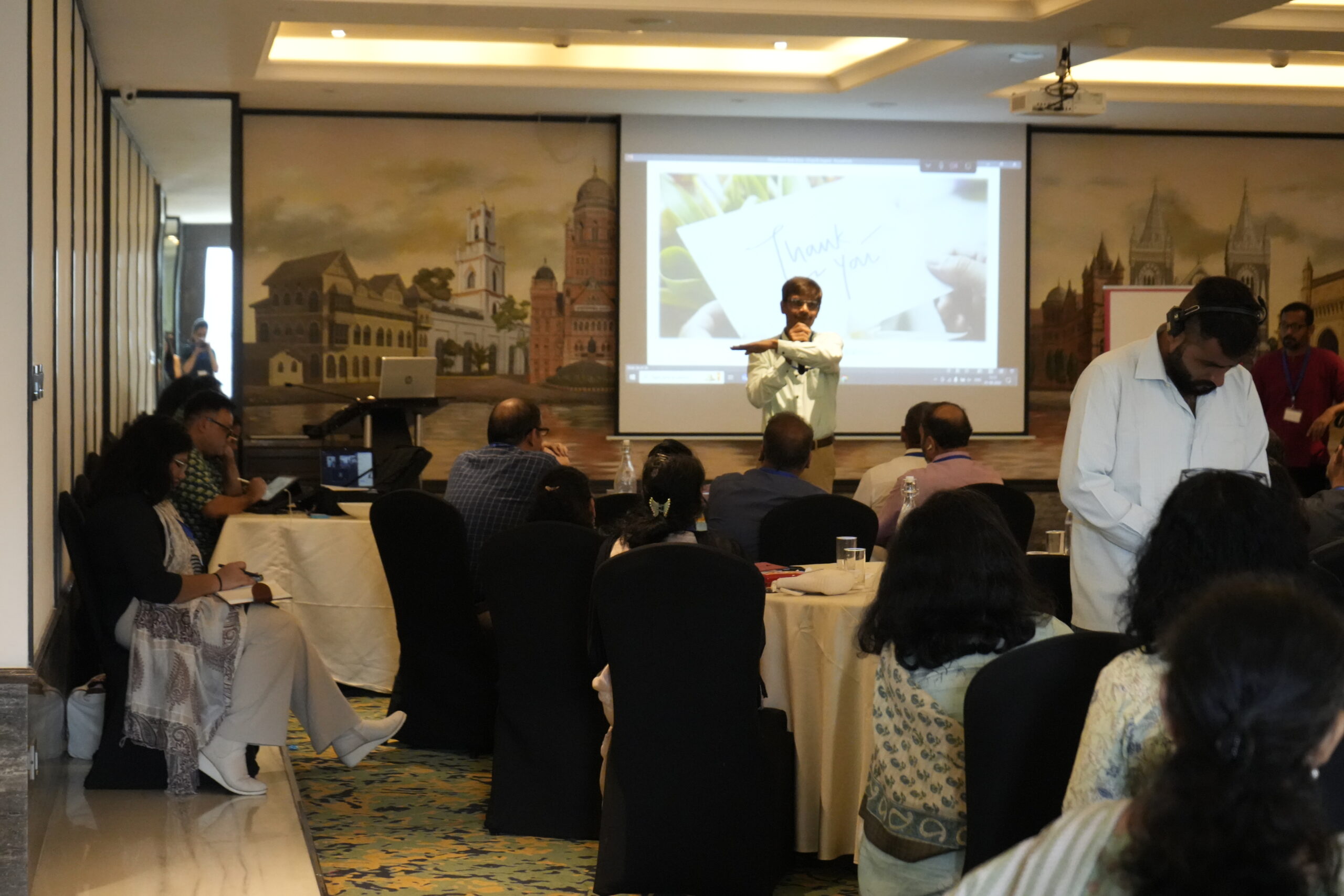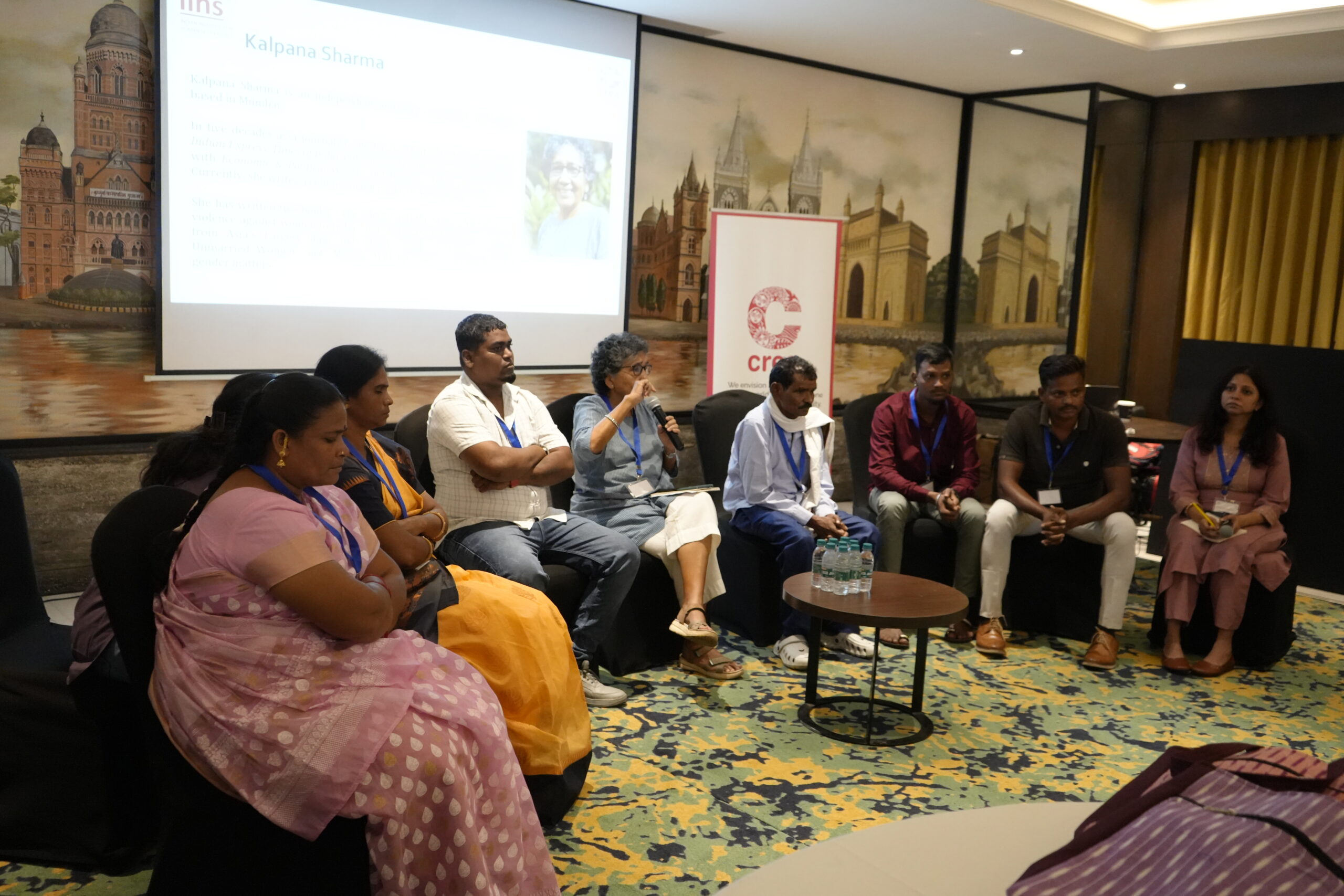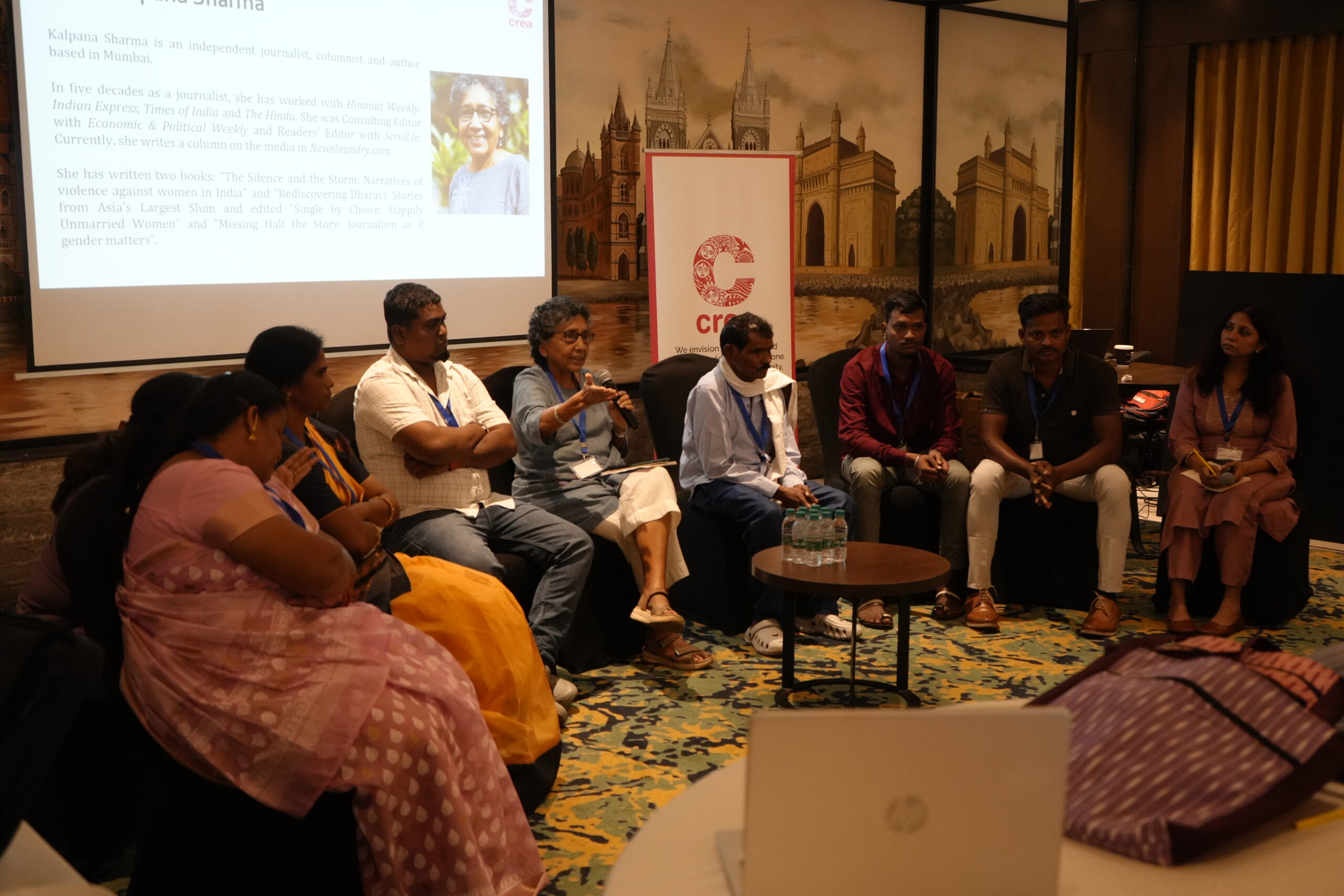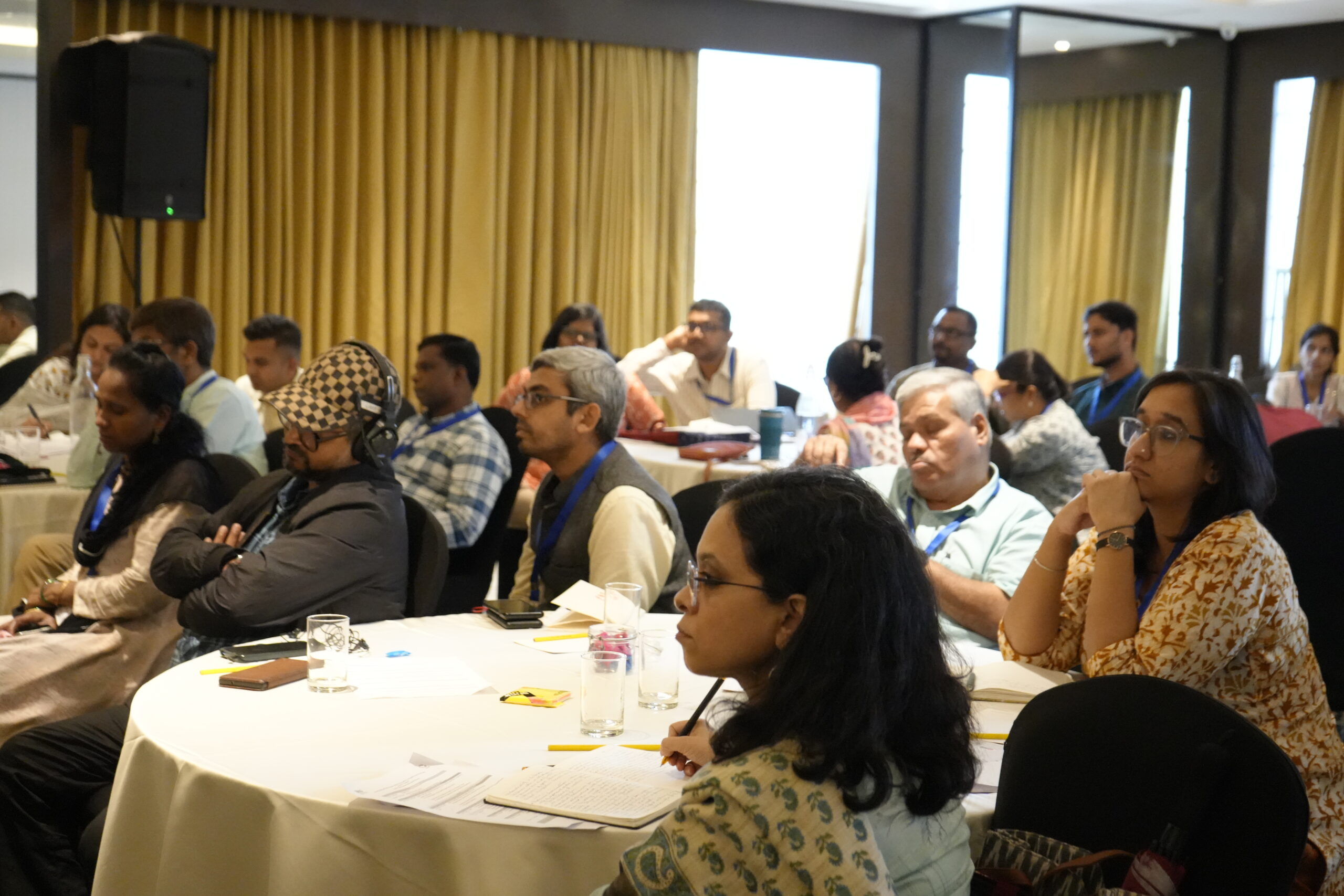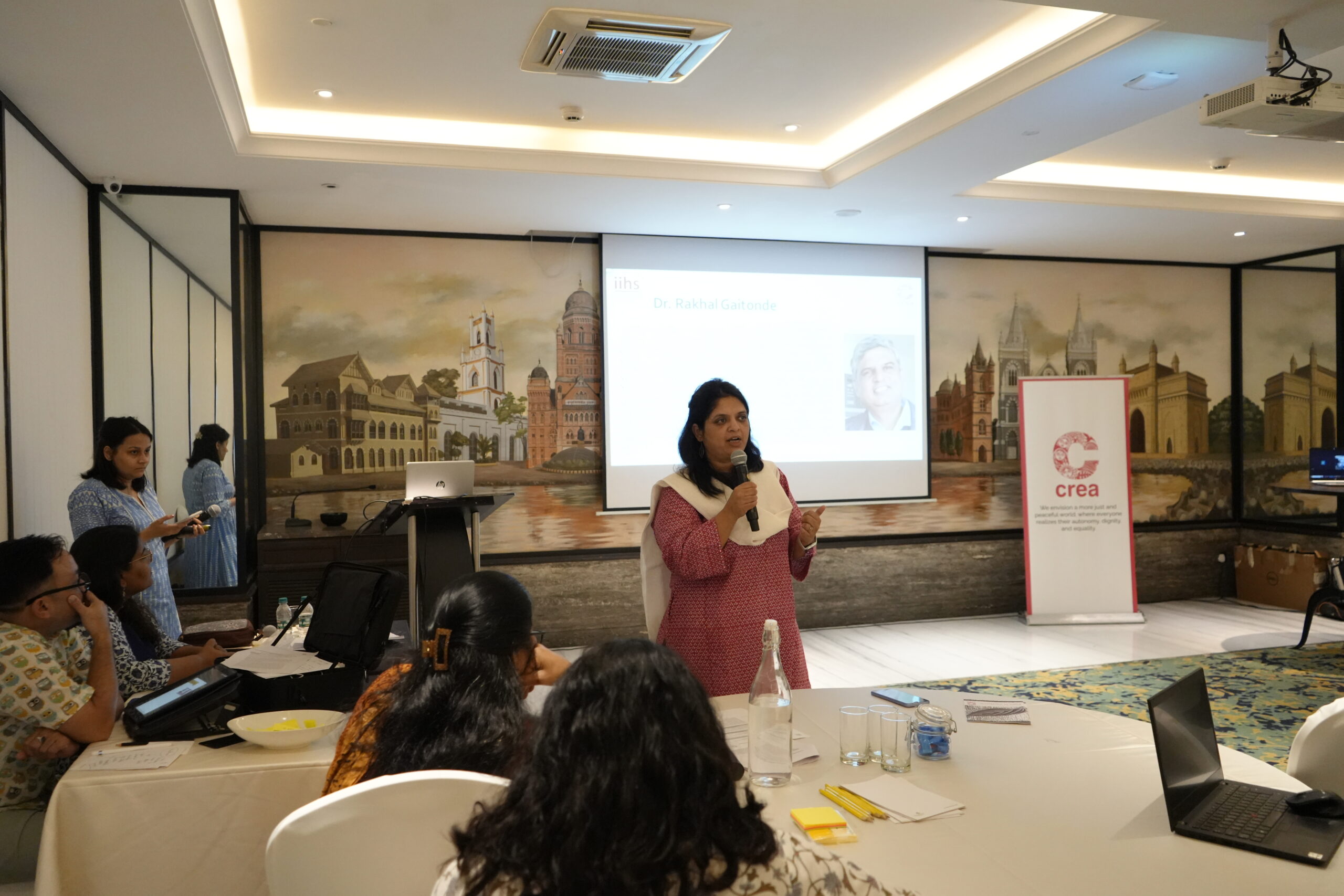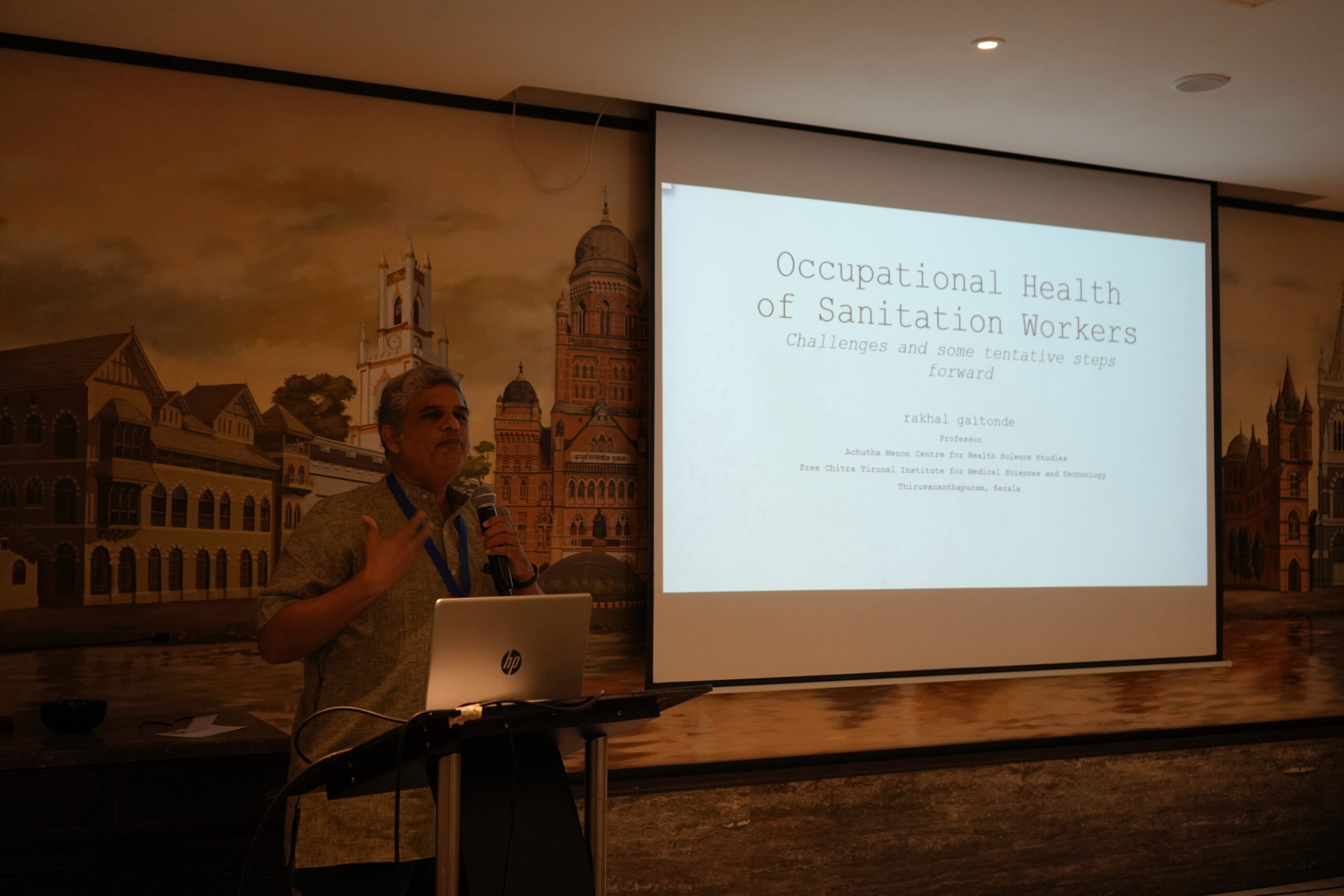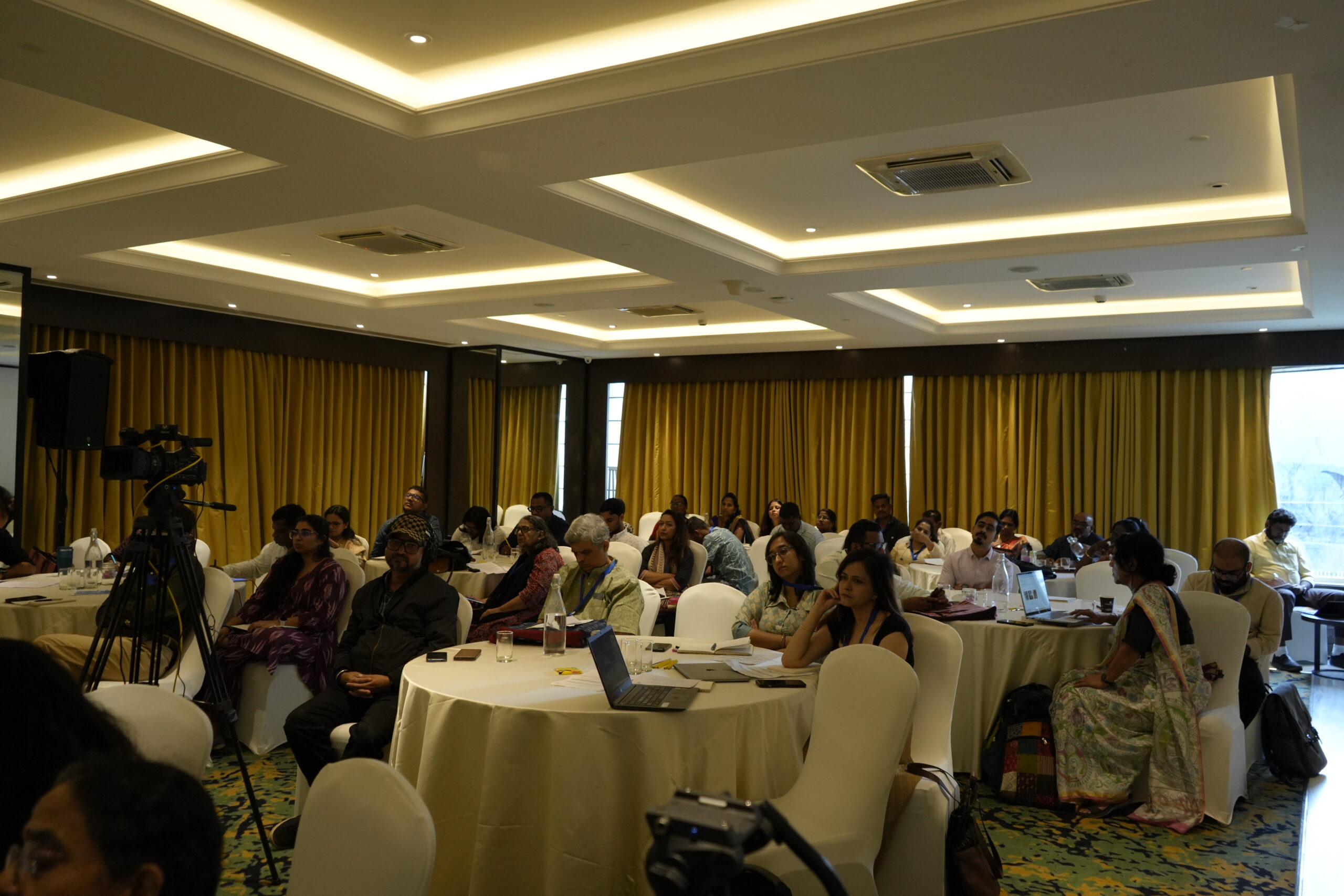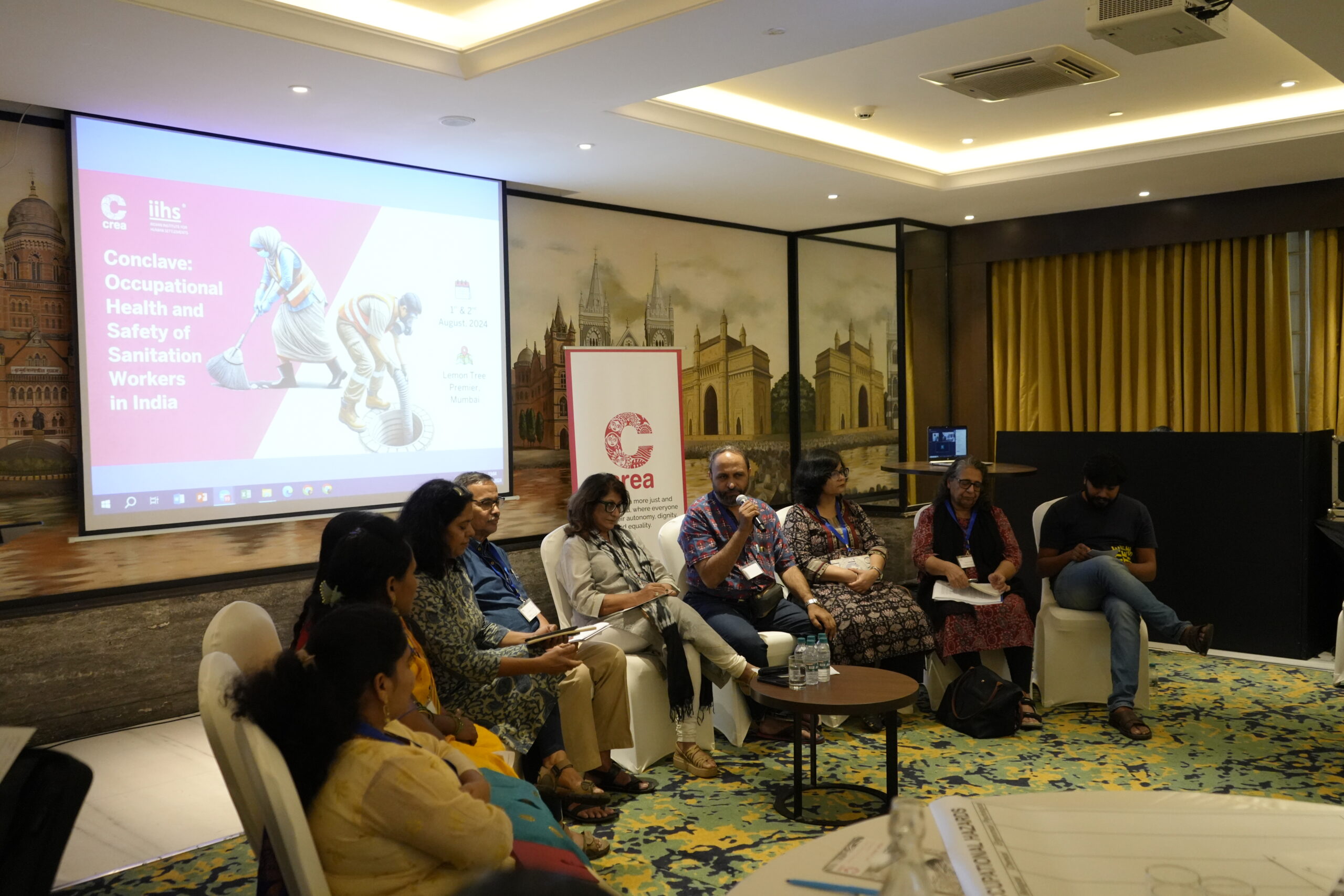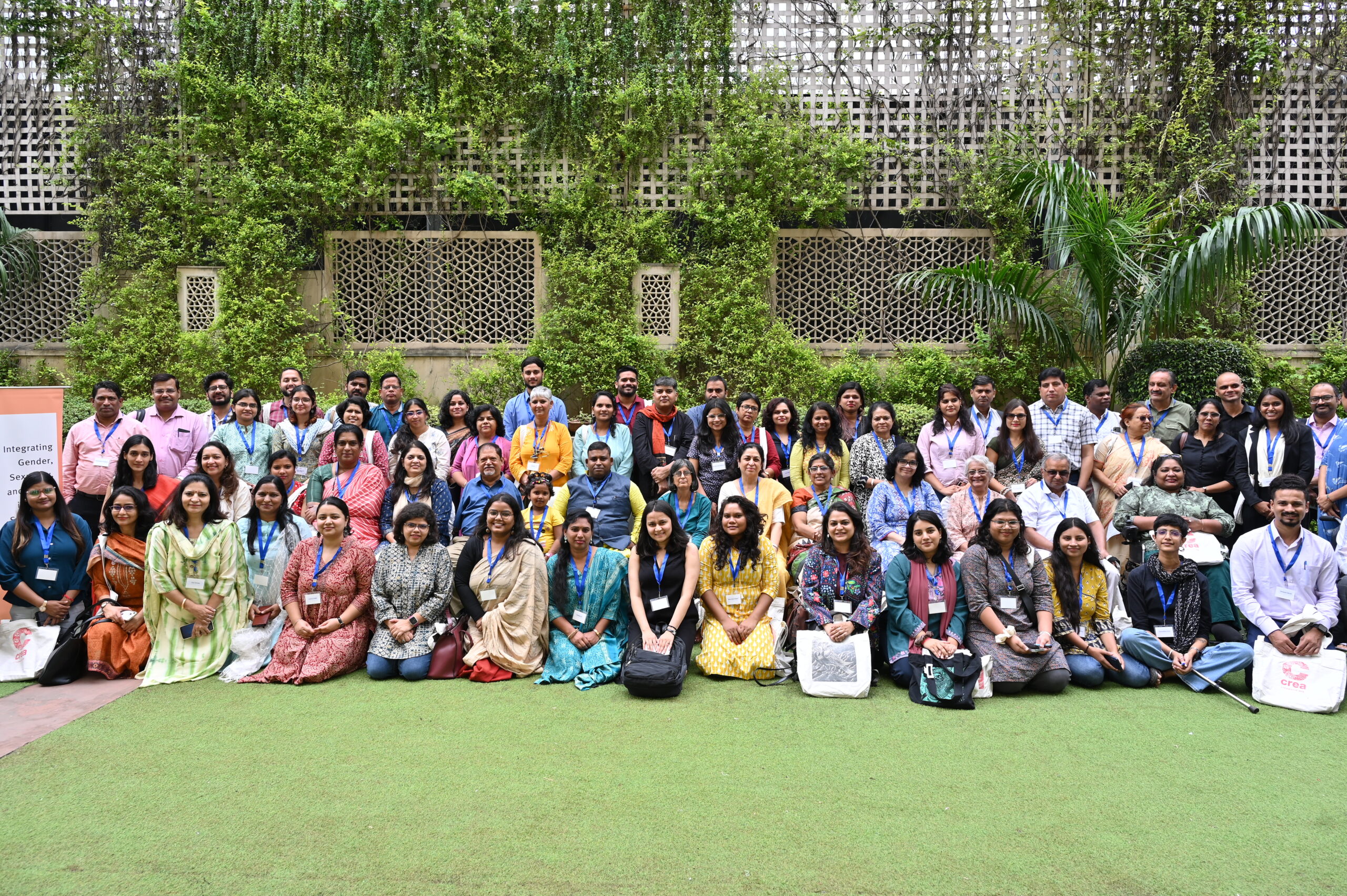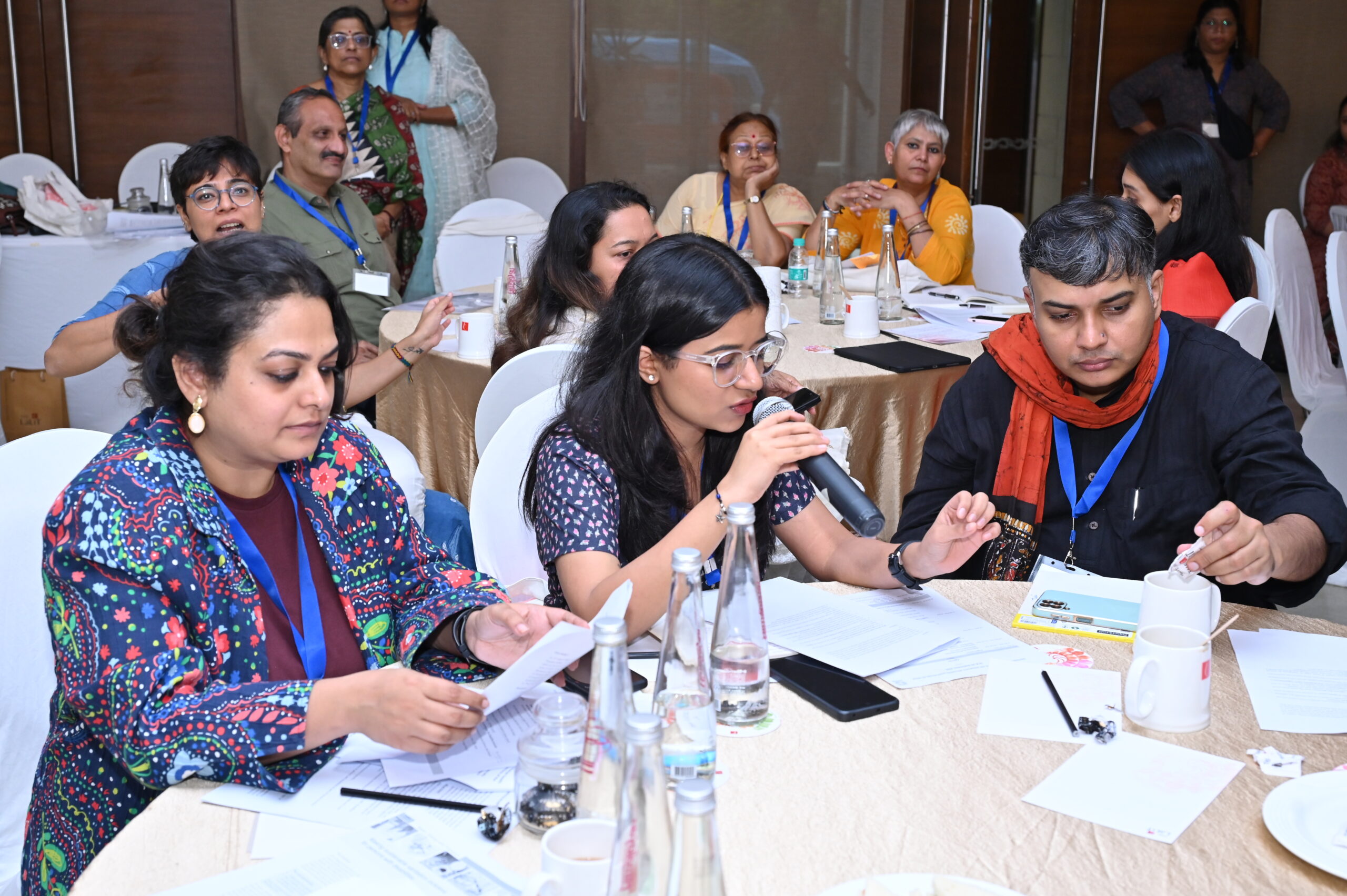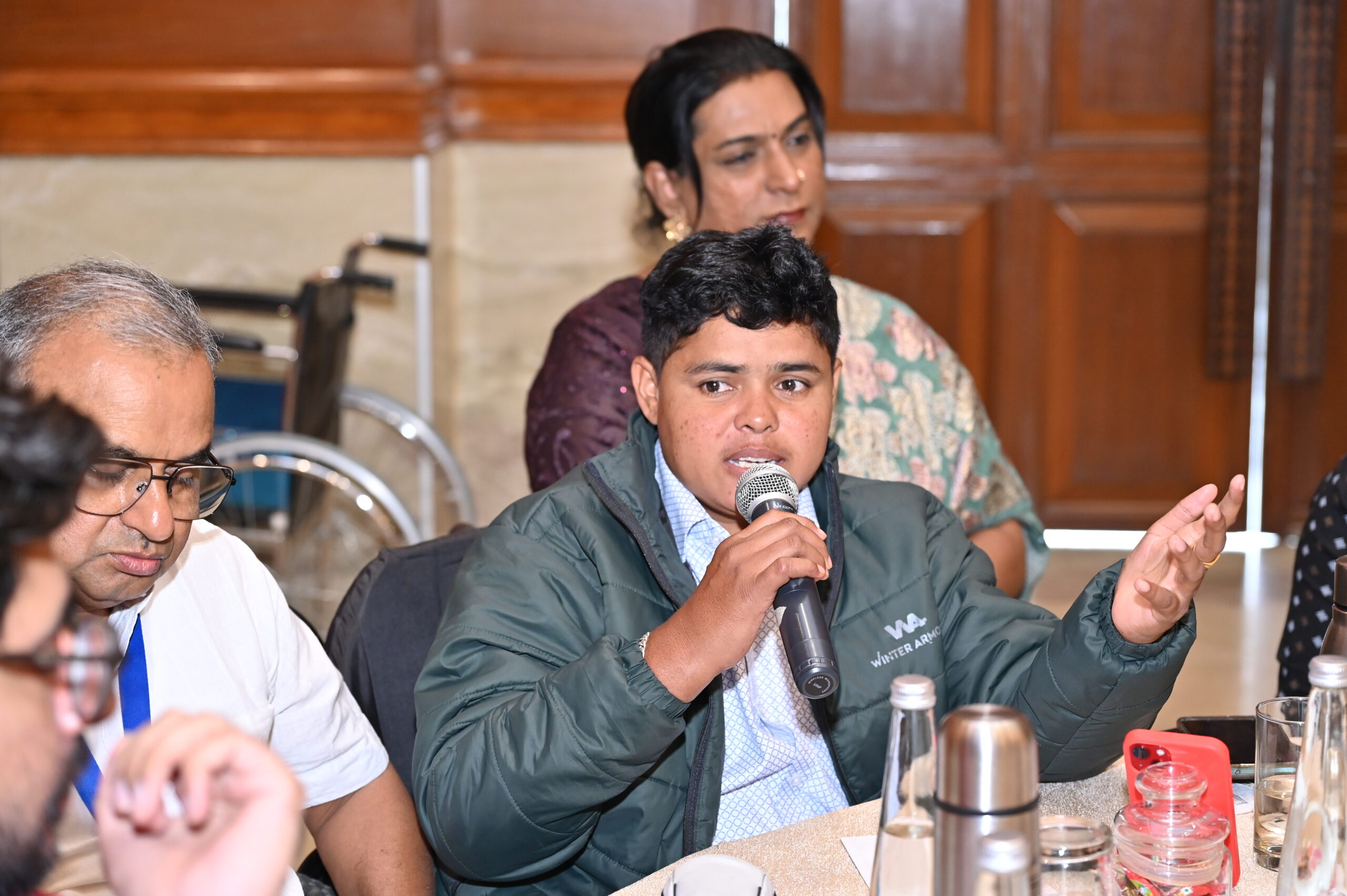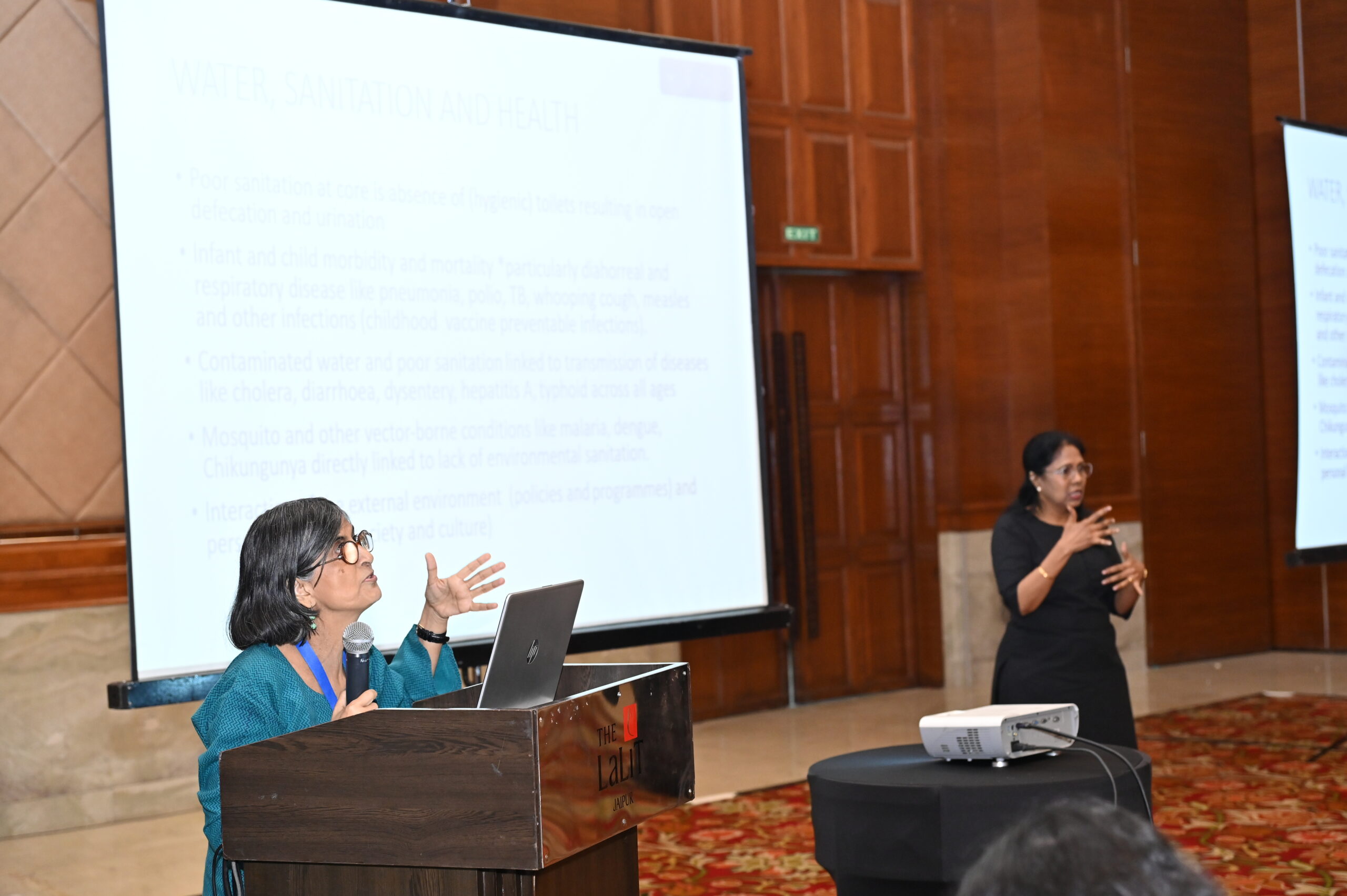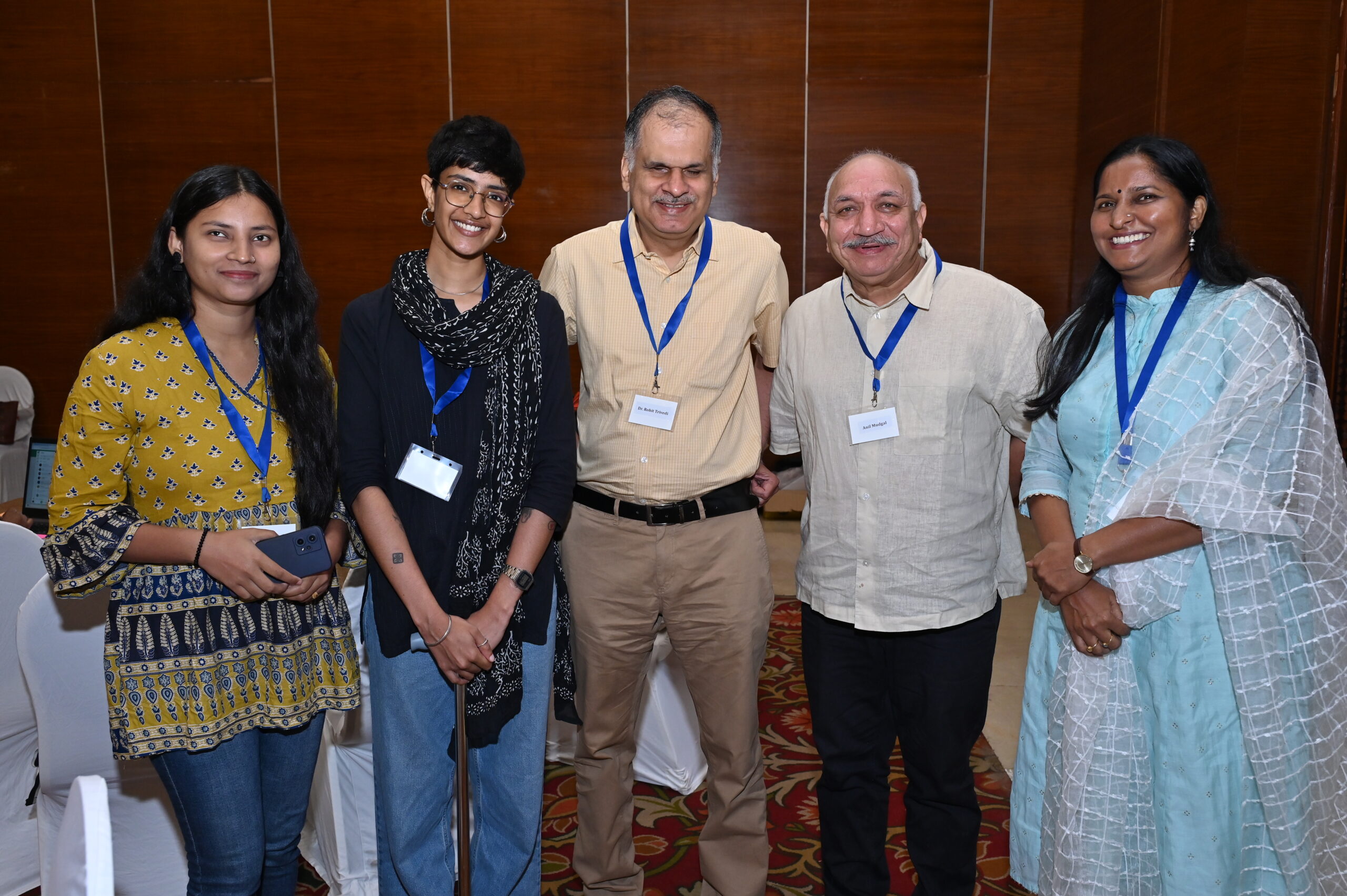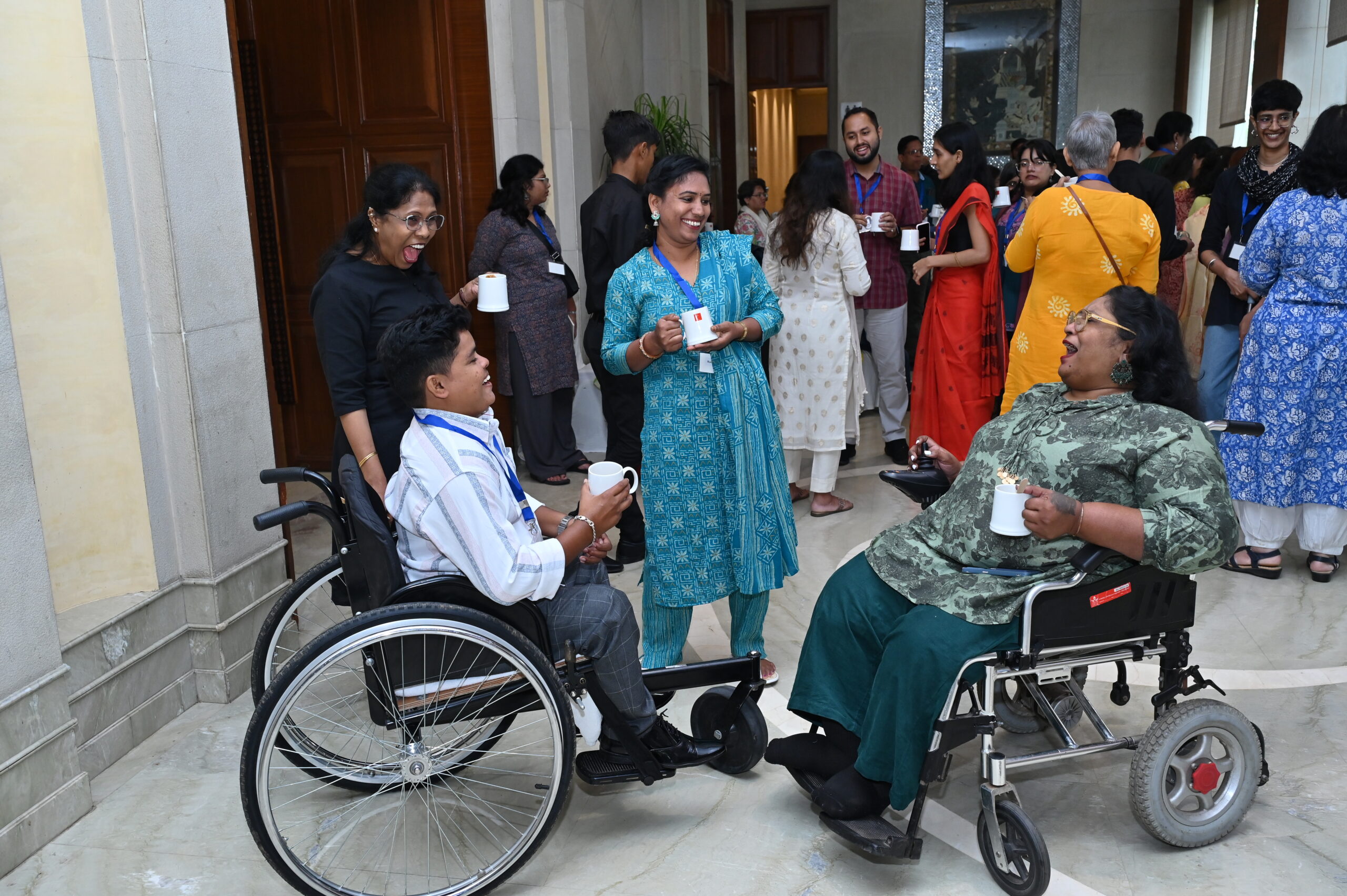Explore the Hub
Non-government Stakeholders
WASH Professionals
Integrating Gender, Sexuality, and Rights in Urban Sanitation, New Delhi
CREA organized a 3-day residential training on “Integrating Gender, Sexuality, and Rights in Urban Sanitation” from September 5-7, 2022, in New Delhi. The training focused on strengthening participant’s knowledge and skills to address gender, sexuality, and human rights in urban sanitation, promoting inclusive design and best practices. Sessions explored how power dynamics based on gender, caste, and class—shape access to sanitation services, with testimonies from sanitation workers, sex workers, transgender individuals, and people with disabilities, amplifying voices of structurally excluded groups.
Downloadable Resources
Integrating Gender, Sexuality, and Rights in Urban Sanitation, Odisha
Integrating Gender, Sexuality, and Rights Perspectives in the Urban Sanitation Ecosystem, a four- day training session was held in Bhubaneswar, Odisha Organized by the Odisha Alliance, the state chapter of the National Alliance (NFSSM). The training gathered WASH professionals from organizations like Janaagraha, WaterAid India, and Dasra, eGov Foundation, Ernst & Young LLP, WASH Institute, FANSA, Urban Management Centre, Global Water and Sanitation Centre, and Dasra.
Key topics included unpacking gender identities, integrating gender in sanitation programs, and ensuring accessible sanitation for persons with disabilities, all aimed at advancing inclusive sanitation policies in the state. The sessions also explored challenges faced by self-help groups, the exclusion of transgender communities, and the need for disability-inclusive sanitation services. The training emphasized the importance of gender-sensitive data, budgeting, and long-term planning to foster a more equitable sanitation ecosystem.
Learning exchange for WASH professionals – Trichy, Tamil Nadu
The Learning Exchange, held in Trichy, Tamil Nadu on 4th and 5th September 2023, was organized to facilitate knowledge sharing on successful approaches to mainstreaming gender into the sanitation value chain, particularly in the context of city-wide inclusive sanitation (CWIS). Hosted by IIHS under the Tamil Nadu Urban Sanitation Support Programme (TNUSSP). Key discussions focused on empowering women in sanitation, capacity-building for workplace safety (PoSH), and interactions with women masons, desludging operators, and SHGs engaged in sanitation and entrepreneurship.
Learning exchange for WASH professionals – Bhubaneswar, Odisha
The “Gender and WASH: Odisha Learning Exchange” took place on January 30-31, 2024, organized by CREA in collaboration with the Odisha Urban Academy (OUA), EY, Urban Management Center (UMC), Janaagraha, e-Government Foundation, and CFAR. This two-day learning exchange brought together ten civil society organizations from across India to explore the Odisha Urban Sanitation model, focusing on gender-inclusive sanitation approaches. As part of our resource hub dedicated to integrating gender, sexuality, and rights in the WASH sector, this initiative also kicked off a collaborative effort to provide gender training for Urban Local Bodies (ULBs) in a cascading model across all 115 ULBs at once. Participants fostered knowledge sharing and collaboration among WASH organizations to enhance gender-inclusive practices in urban sanitation.
Gender training for TULIP Interns: Housing and Urban Development Department (H&UDD) of the Government of Odisha
CREA’s involvement in the Odisha NFSSM Alliance led UMC to include a gender and inclusion session for TULIP interns. These interns, supporting Urban Local Bodies (ULBs) under the Housing and Urban Development Department (H&UDD) of the Government of Odisha, received a 3-month training program to enhance their technical and managerial skills. In January 2023, CREA trained these interns, working on urban sanitation initiatives, on gender concepts and intersectionality. They were also guided in developing action plans to ensure sensitivity when working with socially excluded groups, strengthening their capacity to promote inclusive and equitable sanitation practices.
Government Stakeholders
Capacity building of Urban Local Bodies - Maharashtra
CREA in collaboration with partner organization Centre for Water and Sanitation (CWAS) organized one-day training for ULB officers and staff of Karad, Vita and Ichalkaranji Municipal Council in January 2024. The training on ‘Integrating Gender Inclusivity in Urban Sanitation’ was facilitated by Preeti Karamarkar and Smita Waingankar. The agenda for one-day training includes unpacking gender concepts, understanding on prevention of sexual harassment at workplace Act and gender responsive urban sanitation.
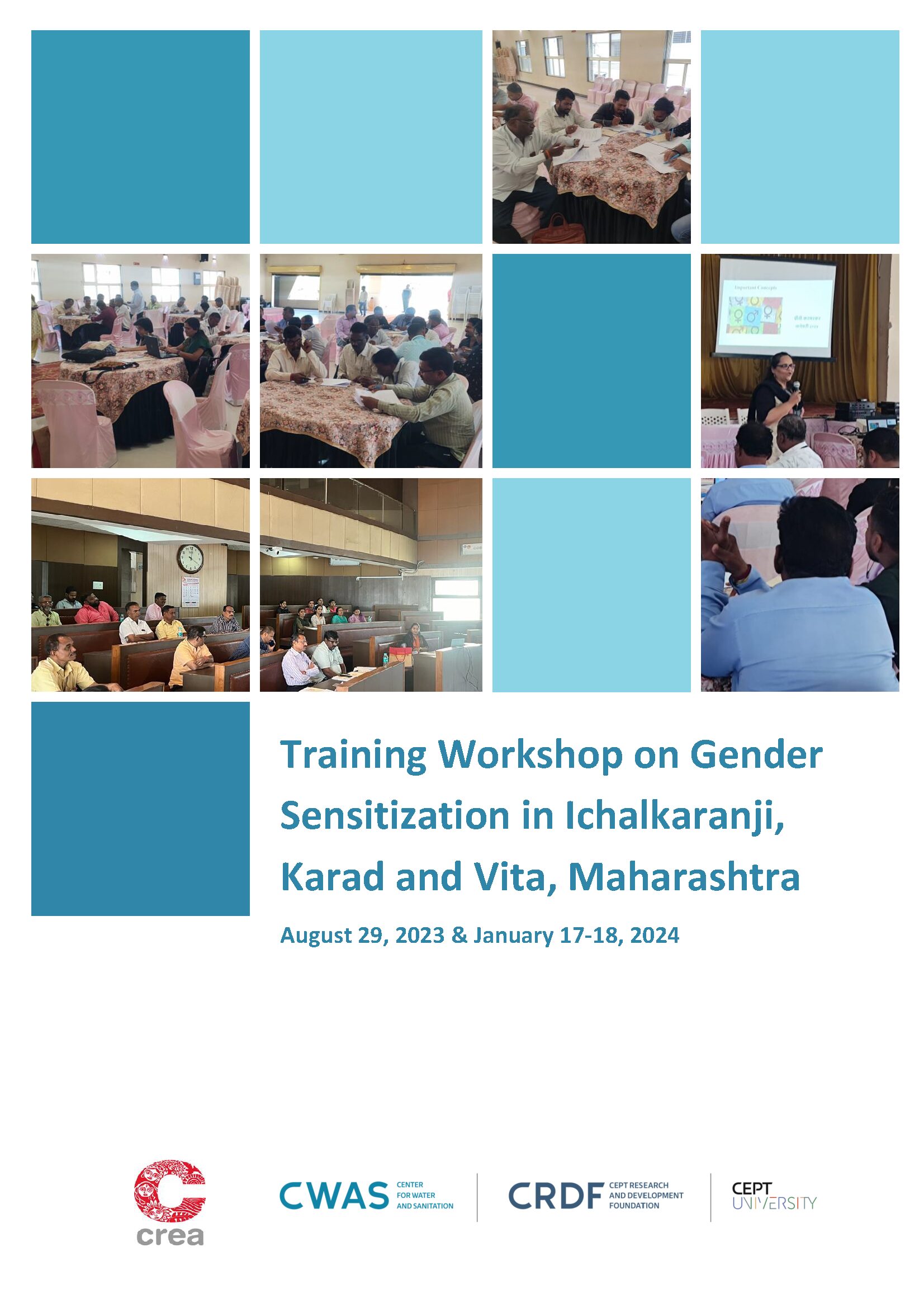
Capacity building of Sanitation Workers - Maharashtra
Centre for Water and Sanitation (CWAS) in partnership with CREA, conducted workshops on gender sensitization at workplaces in Ichalkaranji, Karad, and Vita in Maharashtra. Participants, including the Head of Departments, engaged in interactive sessions covering gender dynamics, intersectionality, and the Prevention of Sexual Harassment Act 2013. Through interactive presentations, real-life examples and group activities, attendees were oriented towards gender roles, societal norms, and the necessity for adopting an inclusive approach. This report summarizes the key sessions, feedback, learnings and the way ahead of the training workshops.
Downloadable Report
Water Corporation of Odisha (WATCO), Housing & Urban Development Dept, Govt. of Odisha
CREA in collaboration with Urban Management Centre (UMC) has extended support for the facilitation of sessions on unpacking the concept of gender during the training of Asst. Managers from WATCO. These Asst. Managers are responsible for the training and handholding support to women Jalasthi under the Jalsathi Program. Crea has developed module and facilitated two batches of training on building capacities of Asst. Managers on Understanding Gender and its concept.
Online Course on Gender & WASH for Housing & Urban Development Dept, Govt. of Odisha, Govt. of Odisha
CREA in collaboration with Odisha Urban Academy will launch an online certificate course on Gender and WASH. The certificate course will lead to enhance the capacities of officials and staff of Department of Housing and Urban Development in Odisha on gender-responsive approaches to WASH program. It seeks to promote a deeper understanding of the intersection between gender and WASH issues, equipping officers with knowledge, skills, practical tools and strategies to integrate gender considerations into their WASH initiatives.
It will be tentatively an online or hybrid certificate course on Gender and WASH.
Transforming M-Ward Project, TISS Mumbai and CREA
CREA and Transforming M-Ward Project, TISS have collaborated for joint intervention in the areas of developing a training module for capacity building on Gender and WASH. The objective of the Training course is to capacitate the participants/community members who are seeking out community-based management of safe sanitation services in their neighborhoods by catering to their knowledge and skill requirements so that they can meaningfully engage with the sanitation question in a more informed manner. The duration of the course tentatively can be between 24 to 30 hours.

SELF Academy for adolescent girls (with Safai Karamchari Andolan)
SELF Academy (Gender-Wash) 2024, held in New Delhi, India, from June 4 to 14th. This academy had participants from Sanitation workers families from Delhi, Bhopal and Rajasthan. There were a total of 27 girls attending the academy. Most of them were from Safai Karamchari Aandolan, few were from center for Dalit rights Jaipur and Samaan society Bhopal. The academy was adapted for this group with the goal to end intergenerational caste based sanitation work.
Occupational Health & Safety of Sanitation Workers
SELF Academy (Gender-Wash) 2024, held in New Delhi, India, from June 4 to 14th. This academy had participants from Sanitation workers families from Delhi, Bhopal and Rajasthan. There were a total of 27 girls attending the academy. Most of them were from Safai Karamchari Aandolan, few were from center for Dalit rights Jaipur and Samaan society Bhopal. The academy was adapted for this group with the goal to end intergenerational caste based sanitation work.
Downloadable Resources
The National Consultation on Disability Inclusive Sanitation in India
The National Consultation on Disability Inclusive Sanitation in India took place in Jaipur on 19–20 September 2024. This two-day consultation brought together key stakeholders to advance disability inclusion in sanitation. The two-day event focused on structural ableism, barriers to accessibility, legal frameworks, intersectionality, cross-sectoral issues, and SRHR. This consultation provided an essential platform to address inequities impacting persons with disabilities in accessing sanitation services. By centering lived experiences and promoting cross-sectoral collaboration, the consultation aimed to bridge gaps between policy and practice, paving the way for more inclusive sanitation solutions in India.

Accelerating Change - Inclusive sanitation for All - World Toilet Day Webinar
CREA hosted a webinar to accelerate the movement for inclusive sanitation for all. The webinar brought together perspectives of the feminist, disability, caste and trans rights movements on accessible and safe sanitation for all. The panel included Anjlee Agarwal, Samarthyam; writer and academic Hemangi Kadlak; Rituparna Neog, Akam Foundation; Supriya Jaan, ‘Right to Pee’ campaign; and sex workers’ rights activist Tejaswi Sevekari, Saheli Foundation. The session was moderated by CREA’s Dr Padma Bhate-Deosthali and Soumya Tiwari. – (Attach poster and video)
Watch the Webinar:
Knowledge Resources
Campaign with Feminism in India (FII)
The campaign focused on creating and disseminating social media messages and content related to the right to sanitation.
Trans-inclusive Sanitation
The brief on Trans-inclusive sanitation looks at all the existing legal and policy provisions for transgender individuals in India, and identifies gaps and challenges faced by gender and sexually diverse communities, particularly in accessing public restroom facilities. The brief highlights the support and collaboration required across various sectors to promote an inclusive society where public sanitation facilities respect diverse gender identities and ensure equal access for all individuals. This briefing paper is useful for individuals and organizations involved in the water sanitation and hygiene (WASH) sector, WASH practitioners, policymakers, researchers etc. The full brief is now available on the CREA website and you can read it here.
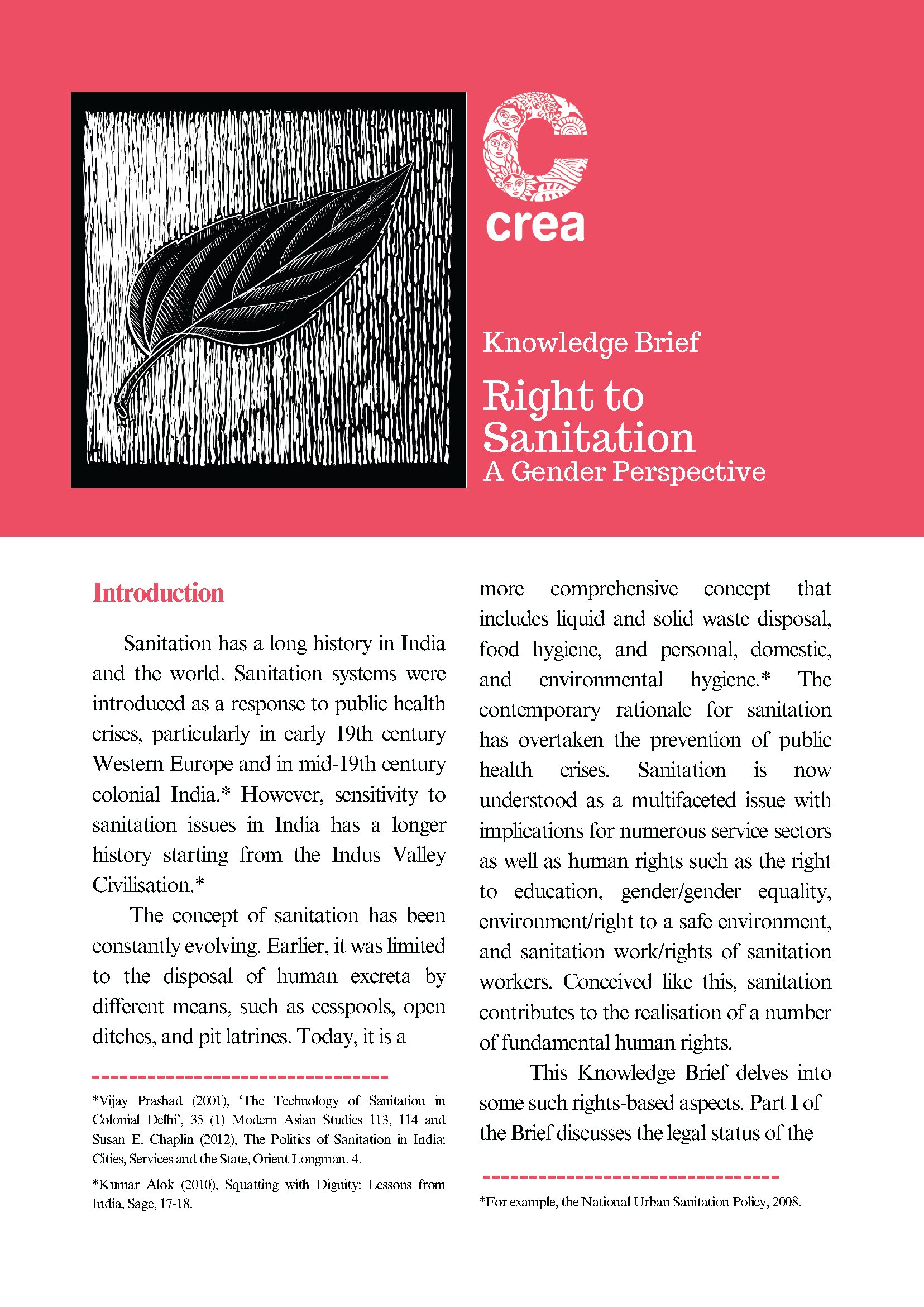
Right to Sanitation - A Gendered Perspective
Sanitation needs and concerns are gendered and further require the law and policy framework to adopt a gender- sensitive approach to address specific sanitation-related needs and concerns of women and girls. The brief on Right to Sanitation – A Gendered Perspective focuses on the gendered dimensions of the right to sanitation in the Indian context. The brief discusses the legal status of right to sanitation in India and in international law, with a focus on structurally excluded communities. This briefing paper is useful for individuals and organizations involved in the water sanitation and hygiene.
Download the Knowledge Brief:

Occupational Health Conclave Report
The Conclave on Occupational Health of Sanitation Workers in India was organized by Crea with the support of the Indian Institute for Human Settlements (IIHS). The conclave aimed to apply an intersectional lens to bring caste, gender, disability and other perspectives into the discourse while discussing and highlighting the pressing health concerns of sanitation workers. The conclave brought together experts, researchers, policymakers, and practitioners to discuss the critical issues surrounding the health and safety of sanitation workers.
Download Visual Notes from the Conclave:
Virtual Learning Sessions
Learning Session on “Messaging around Gender and Sanitation” by Purnima Singh
As a communication strategist with a background in feminist media and digital rights, Purnima brings expertise in creating messages that resonate with diverse audiences. Her session delved into effective communication around gender and sanitation, focusing on crafting impactful narratives that highlight equity and inclusivity in the WASH sector. She provided insights on designing messages that drive change and create awareness on critical issues, helping participants understand the power of strategic storytelling in advocacy.
Learning Session on “Menstrual health and hygiene” by Arundhati Muralidharan
Dr. Arundati Muralidharan: With nearly 20 years of experience in public health programs and policy advocacy, Dr. Muralidharan is a leading voice in menstrual health management (MHM) and urban sanitation. Her session highlighted the importance of a robust menstrual health ecosystem, covering knowledge sharing, policy frameworks, and innovative financing models that ensure accessibility and sustainability. She shared best practices and evidence-based strategies to improve MHM in urban settings, emphasizing the critical role of advocacy in advancing menstrual health.
Learning Session on “Inclusive Design” by Parul Kumtha
An award-winning Universal Design architect, Parul Kumtha leads Nature Nurture Architects, known for their work on inclusive design recognized by the United Nations Global Compact Network. Her session focused on incorporating universal design principles in sanitation to address the needs of people with disabilities. Parul shared insights on creating accessible, user-friendly sanitation infrastructure and discussed her experience in developing solutions under the Government of India’s Access India Campaign.
Learning Session on “Ensuring Accountability for Gender equality: What can we learn from Right to Health ?” by Rajat Khosla
As Director of the International Institute on Global Health, Rajat Khosla has spent over two decades at the intersection of global health, gender equality, and human rights. His session emphasized a human rights approach to sanitation, exploring how sanitation services can be designed to address structural inequalities. Rajat discussed the importance of policy and advocacy in ensuring equitable access and the role of health equity frameworks in addressing systemic challenges in the WASH sector.
Learning Session on “Social Behavior Change and Communication in Urban Sanitation in India” by Shalini Prasad.
With over 20 years in strategic communication for public health and WASH, Shalini Prasad leads UNICEF India’s WASH communication efforts, providing technical support to key government initiatives. Her session focused on Social and Behavior Change Communication (SBCC) strategies within sanitation, sharing effective approaches for shifting public behaviors. Drawing on her extensive experience with organizations like WHO and USAID, Shalini highlighted the impact of targeted messaging and community engagement in improving WASH outcomes across India.
UNC Conference
Gender and wash presentation in the 2023 University of North Carolina (UNC) Water and Health Conference
Wednesday Side Event Session: Gender Equity and Social Inclusion
The University of North Carolina (UNC) Water and Health Conference convenes stakeholders dedicated to improving public health by achieving universal access to safe drinking water, sanitation, and hygiene (WASH) services that are affordable and sustainable. The conference reflects on the ways the world works on water, sanitation, and hygiene issues by generating evidence that drives improvements in both practice and policy. The abstract submitted by the Gender and Wash team for a side event titled “Gender Equity and Social Inclusion in Citywide Inclusive Sanitation: A Discursive Perspective” was chosen by UNC for presentation. During the event, the team had the opportunity to present its approach to integrating gender, sexuality, and rights perspectives into the sanitation sector in India. The presentation highlighted the gendered nature of sanitation and the challenges associated with ensuring safe sanitation, including biological and social aspects, cultural norms and stigma, and gender-based violence. It also brought to attention how sanitation continues to be a caste-based occupation in India. The attendees of the conference expressed appreciation for CREA’s 6Cs approach to addressing the multifaceted issue.
